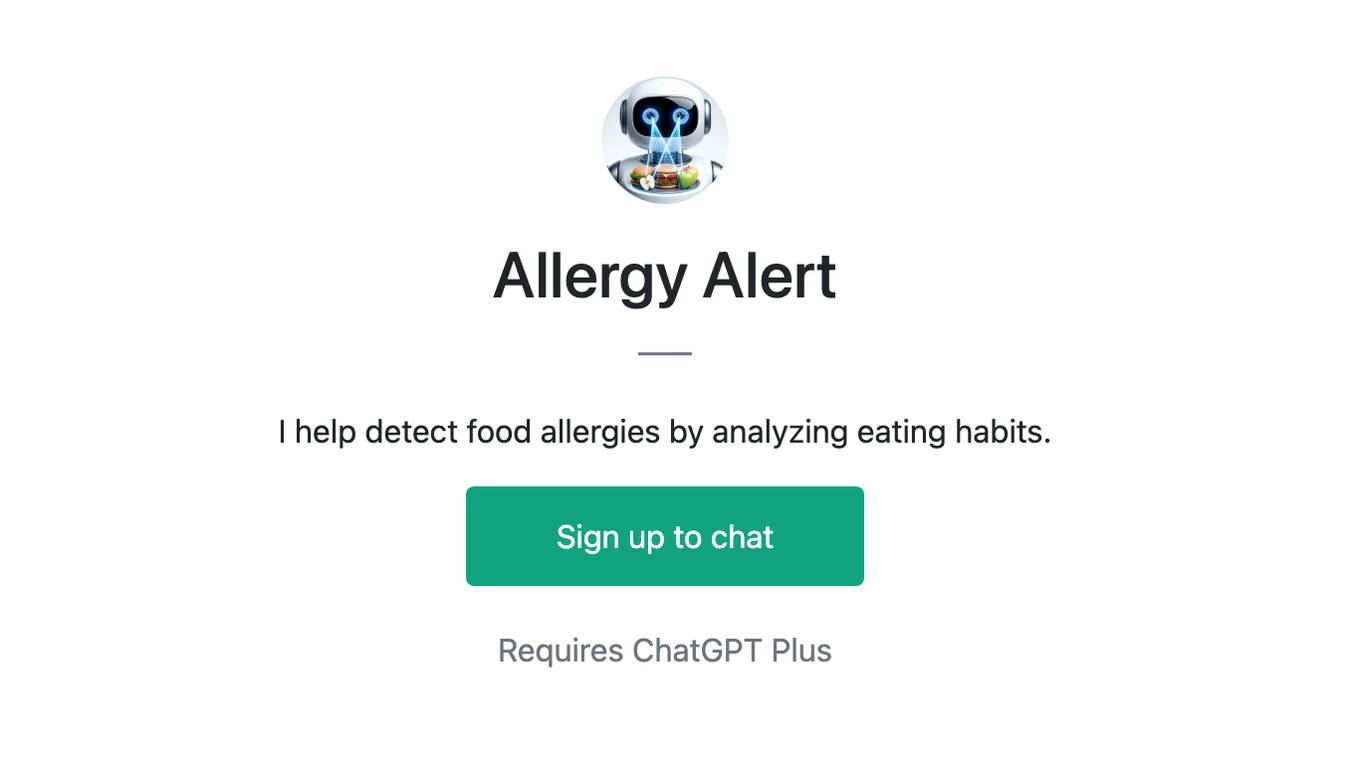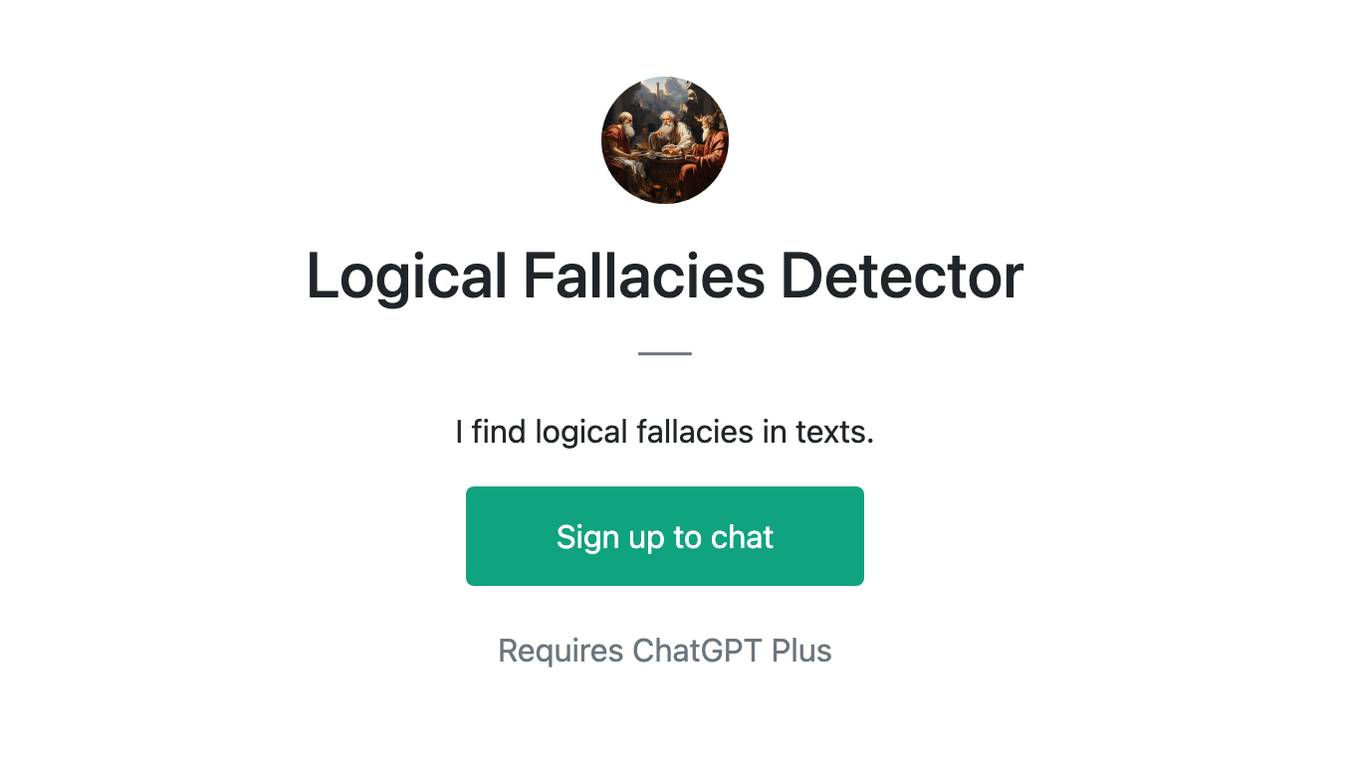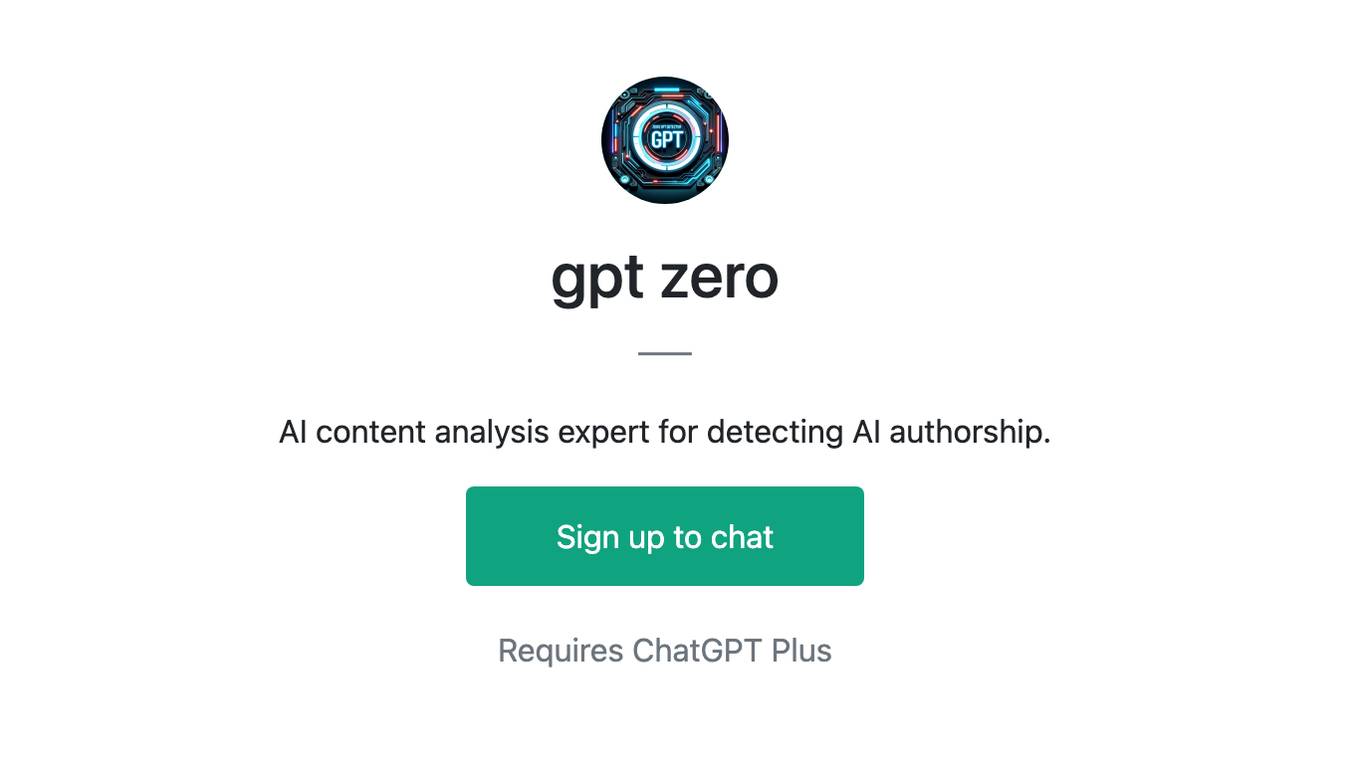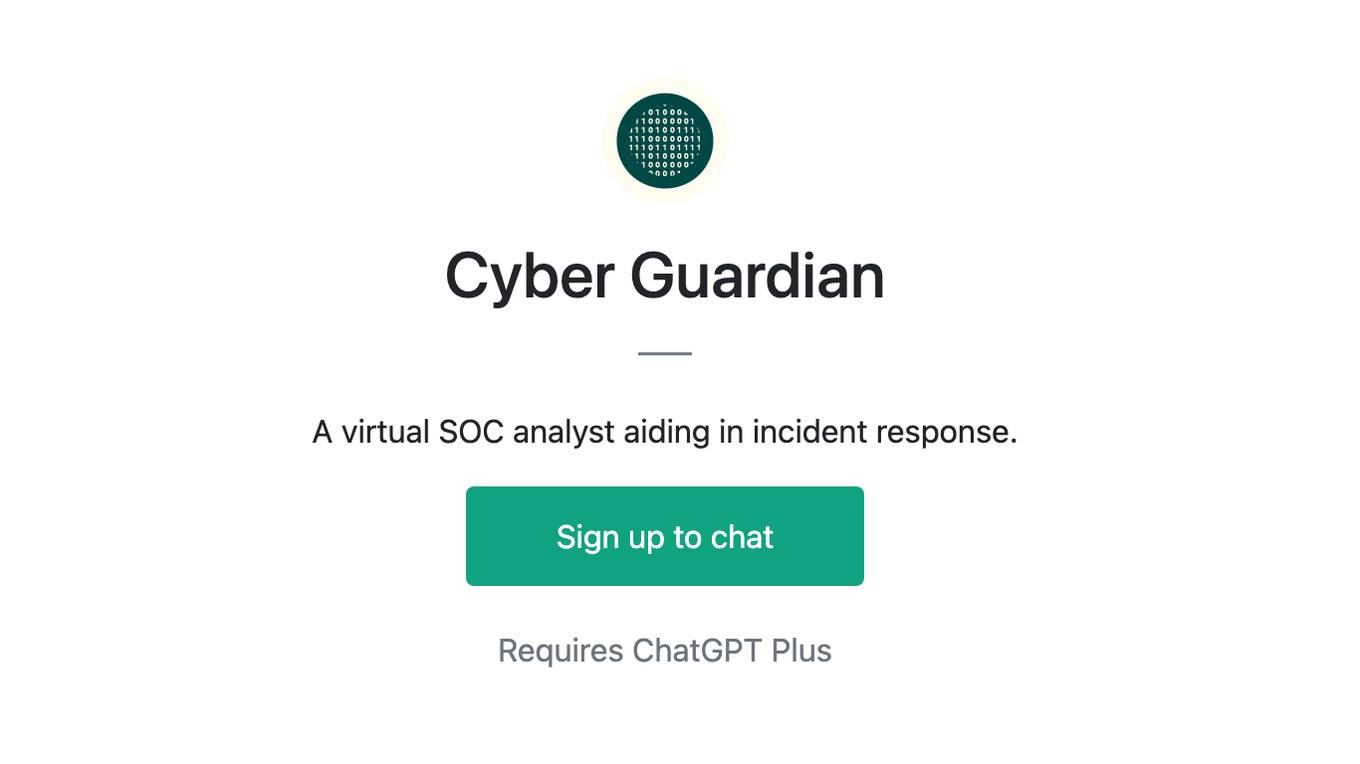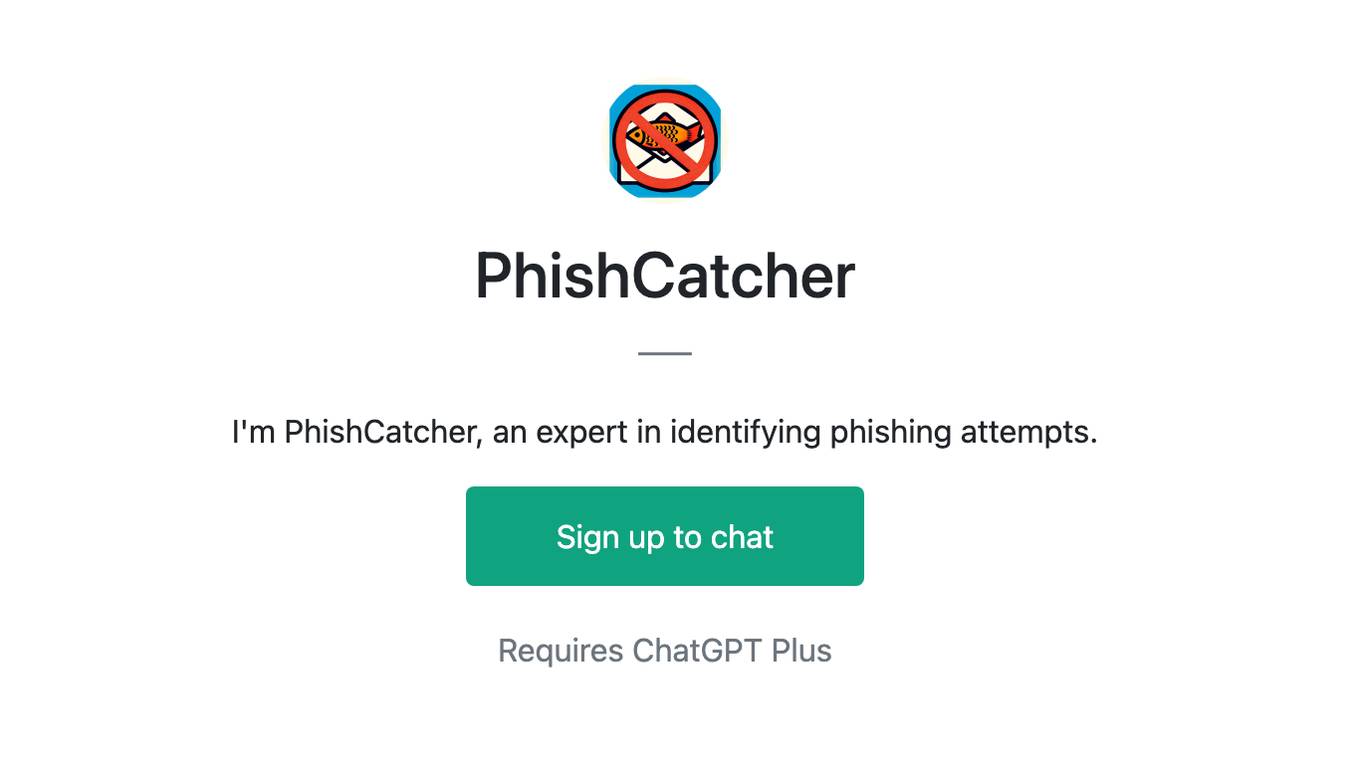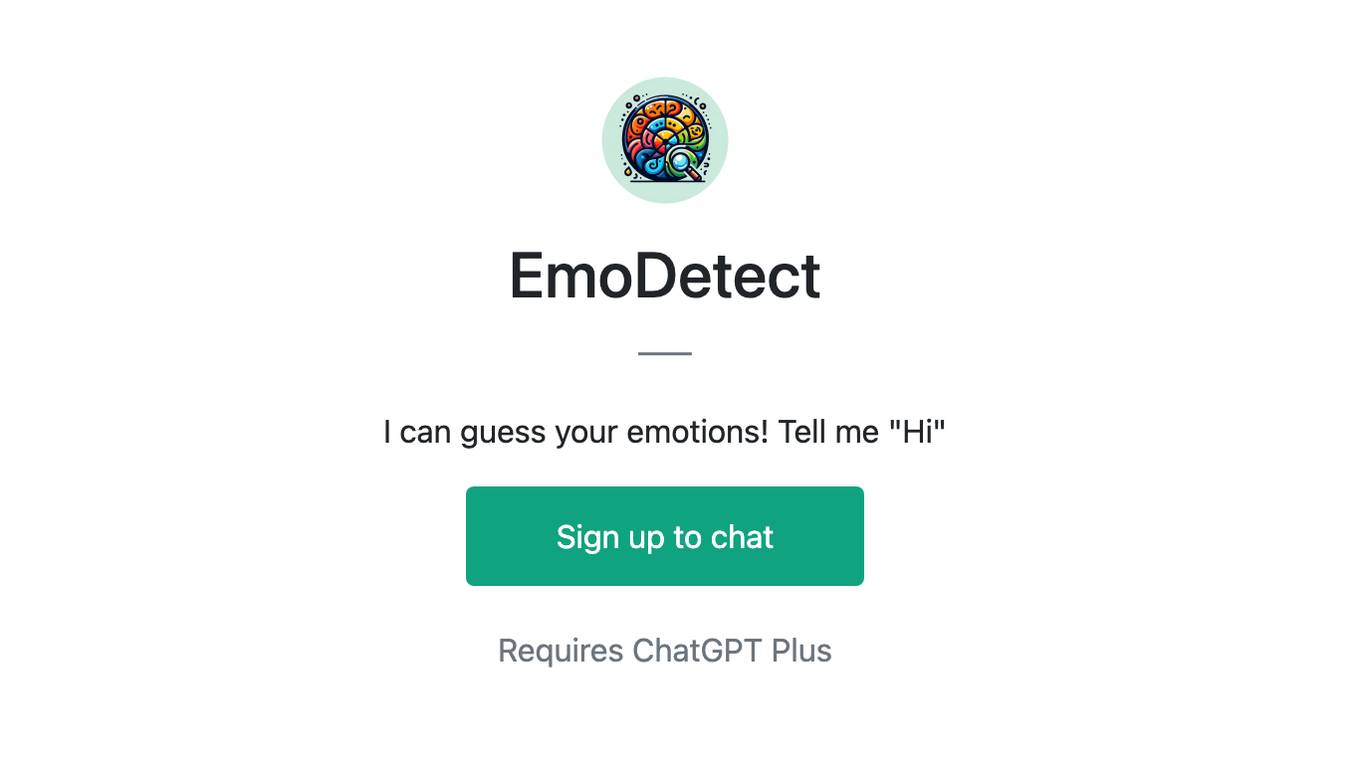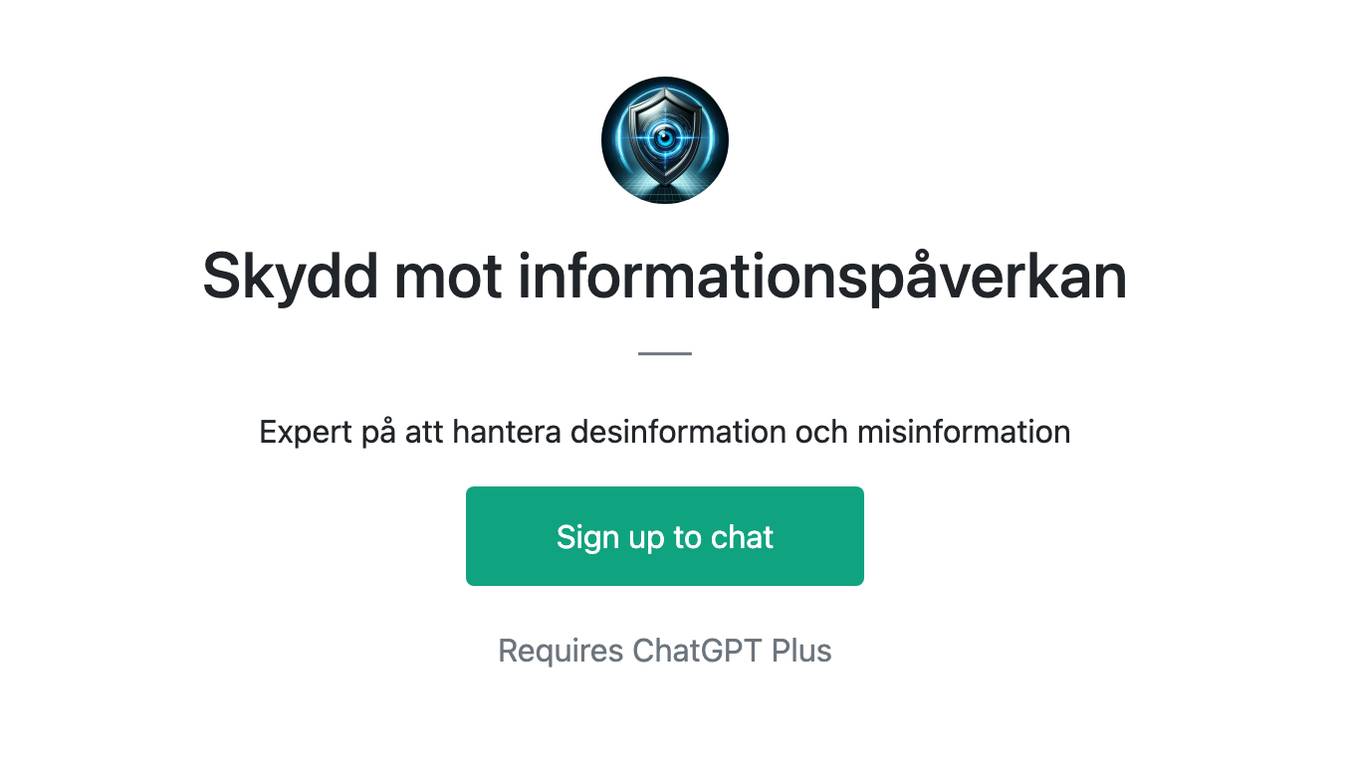Best AI tools for< Detect Lung Cancer >
20 - AI tool Sites

Qure AI
Qure AI is a leading healthcare AI application that offers AI-powered assistance for accelerated healthcare products impact. It provides evidence-based insights and solutions for lung, heart, neuro, and musculoskeletal conditions. Qure AI is designed to be a perfect collaborator in every care decision, with the ability to deploy and scale anywhere with best-in-class support. The application focuses on chest X-ray reporting, TB care cascades, lung nodule management, stroke and traumatic brain injury (TBI), musculoskeletal X-ray reporting, and heart failure.

Oatmeal Health
Oatmeal Health is an AI-powered lung cancer screening and diagnosis platform that aims to bridge the gap in cancer screening rates and early detection. The platform utilizes AI technology to identify and screen high-risk patients for early cancer detection and diagnosis, particularly focusing on lung cancer. Oatmeal Health collaborates with various healthcare organizations and partners to provide trusted cancer screening services and improve healthcare outcomes nationwide.
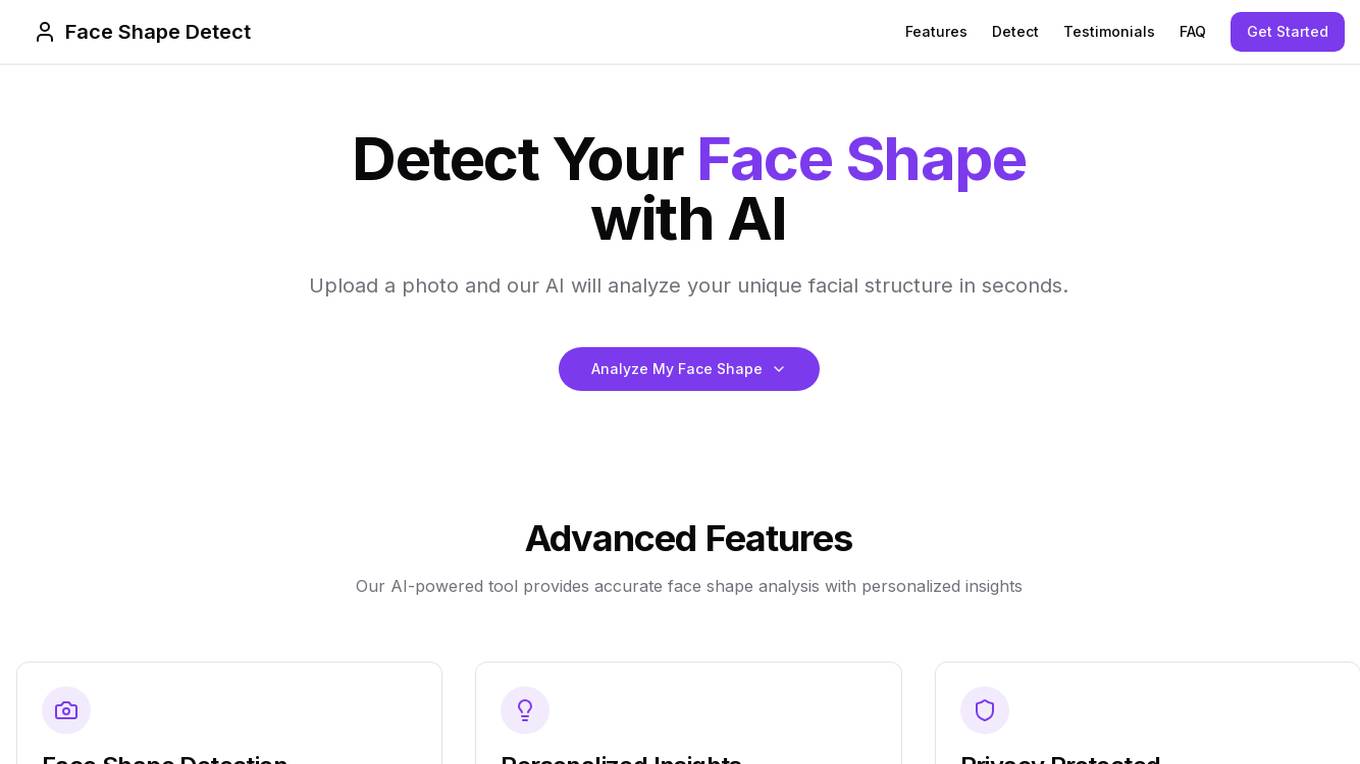
Face Shape Detect
Face Shape Detect is an AI-powered tool that allows users to analyze their unique facial structure and determine their face shape for personalized recommendations. Users can upload a photo to receive accurate face shape analysis and styling tips. The tool prioritizes privacy by securely processing images without storing them. It helps users understand their face shape for better fashion and beauty choices.
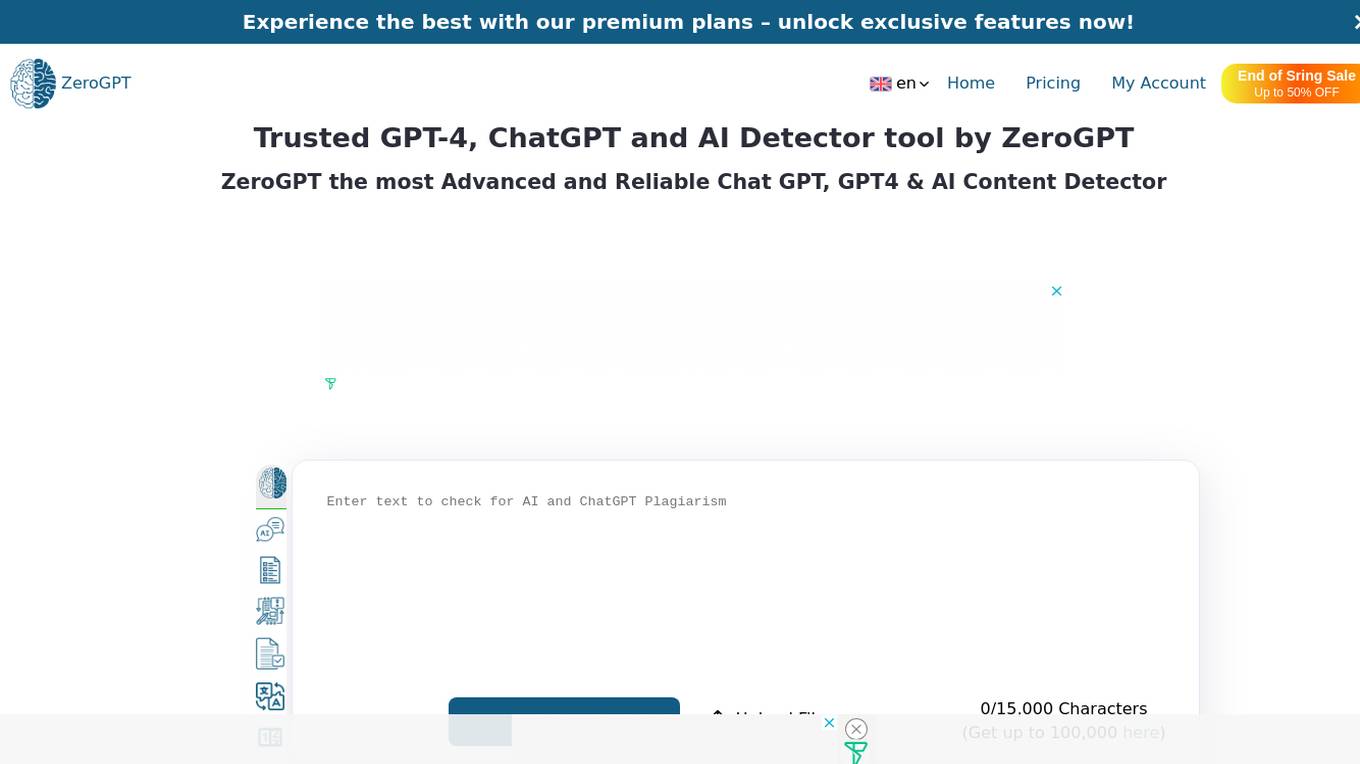
ZeroGPT
ZeroGPT is a trusted AI detector tool that specializes in detecting AI-generated content like ChatGPT, GPT4, and Gemini. It offers advanced features such as AI summarization, paraphrasing, grammar and spell checking, translation, word counting, and citation generation. The tool is designed to provide highly accurate results and supports multiple languages. ZeroGPT stands out for its highlighted sentences feature, batch file upload capability, high accuracy model, and automatically generated reports. It utilizes DeepAnalyse™ Technology, a multi-stage methodology that optimizes accuracy while minimizing false positives and negatives. Users can unlock premium features and API access to enhance their writing skills and integrate the tool on a large scale.

AI or Not
AI or Not is an AI-powered tool that helps businesses and individuals detect AI-generated images and audio. It uses advanced machine learning algorithms to analyze content and determine the likelihood of AI manipulation. With AI or Not, users can protect themselves from fraud, misinformation, and other malicious activities involving AI-generated content.
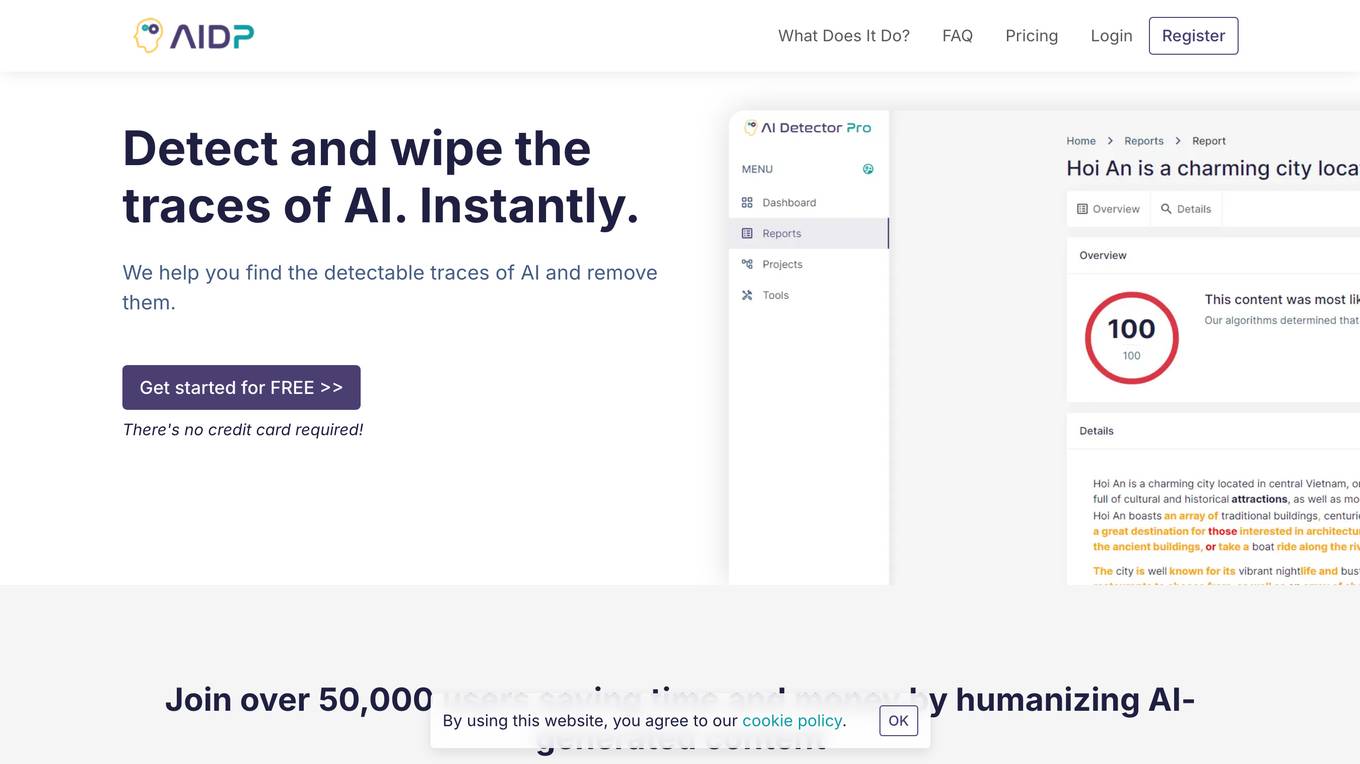
AIDP
AIDP is a comprehensive platform that helps you find and remove the fingerprints of AI in documents. It includes automatic and manual tools for revising content that was written by ChatGPT and other AI models. With AIDP, you can: * Detect and wipe the traces of AI instantly. * See what triggers AI detection. * Get suggestions for wording changes and rewrites. * Make AI sound human. * Get a tone analysis to determine how your document sounds. * Find and wipe AI from any document.
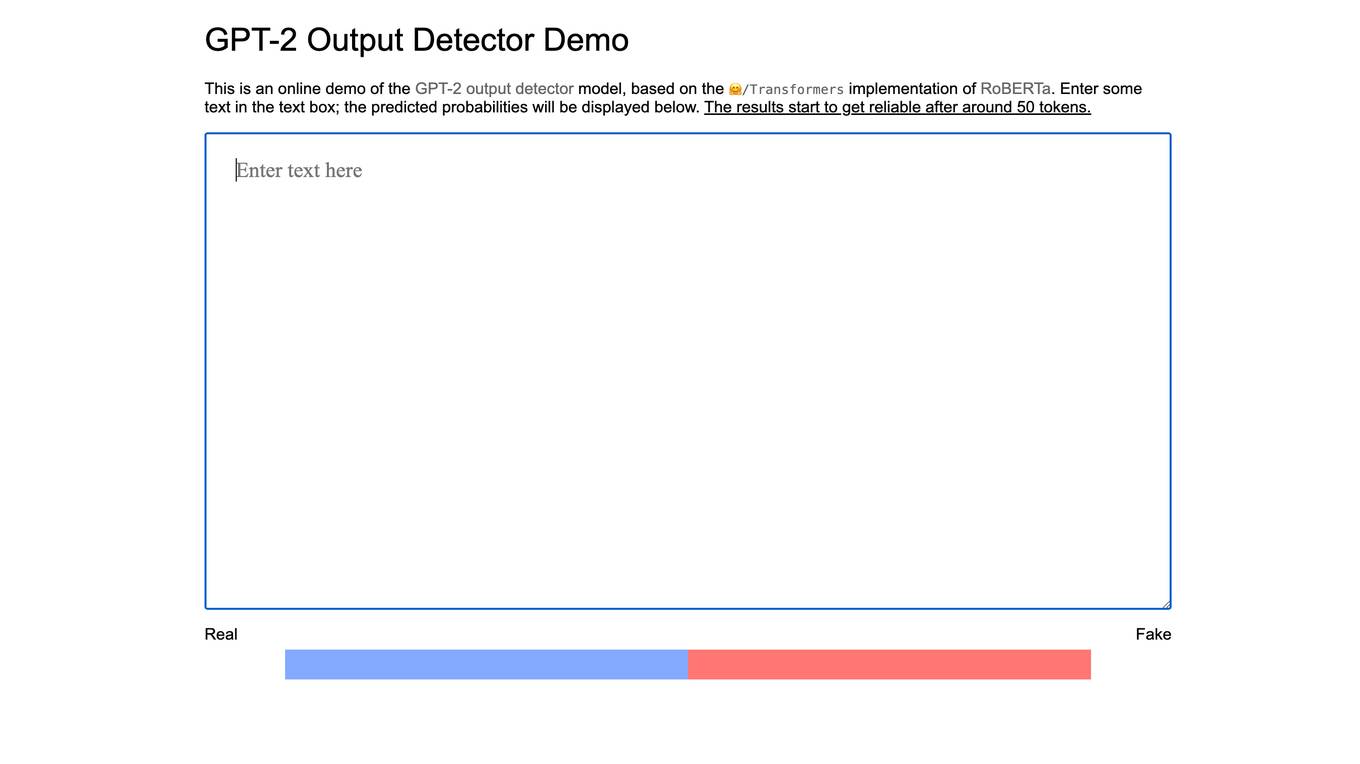
GPT-2 Output Detector
The GPT-2 Output Detector is an online tool that helps users identify whether a given text was generated by the GPT-2 language model. The tool is based on the RoBERTa implementation of Transformers, a popular natural language processing library. Users can enter text into the text box, and the tool will predict the probability that the text was generated by GPT-2. The results start to get reliable after around 50 tokens.

GRAIL
GRAIL is a healthcare company innovating to solve medicine’s most important challenges. Our team of leading scientists, engineers and clinicians are on an urgent mission to detect cancer early, when it is more treatable and potentially curable. GRAIL's Galleri® test is a first-of-its-kind multi-cancer early detection (MCED) test that can detect a signal shared by more than 50 cancer types and predict the tissue type or organ associated with the signal to help healthcare providers determine next steps.
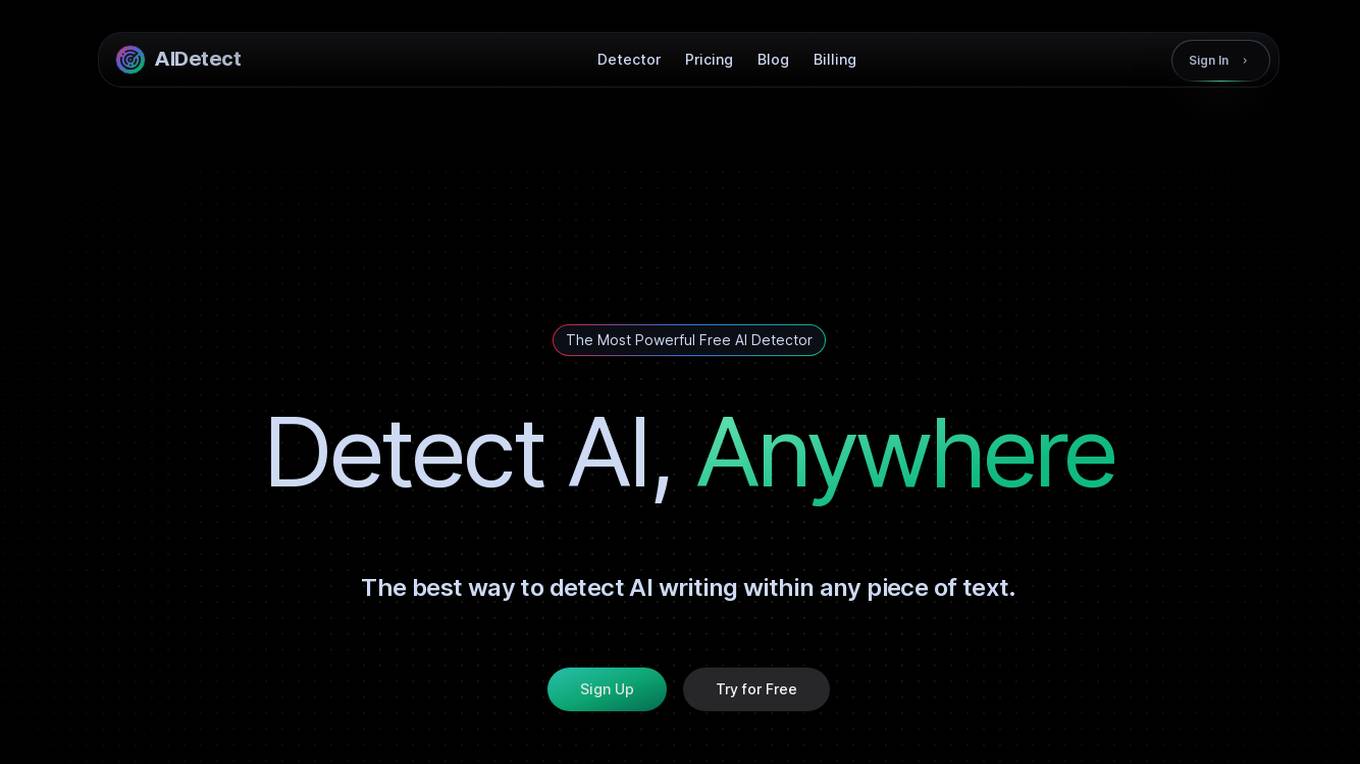
AIDetect
AIDetect is a powerful AI content detector tool that allows users to identify AI-generated writing within any text. It offers cutting-edge features and high accuracy, comparable to Turnitin, to help users verify the authenticity of content. With advanced technology, AIDetect ensures that users can distinguish between human and AI-generated content effortlessly.
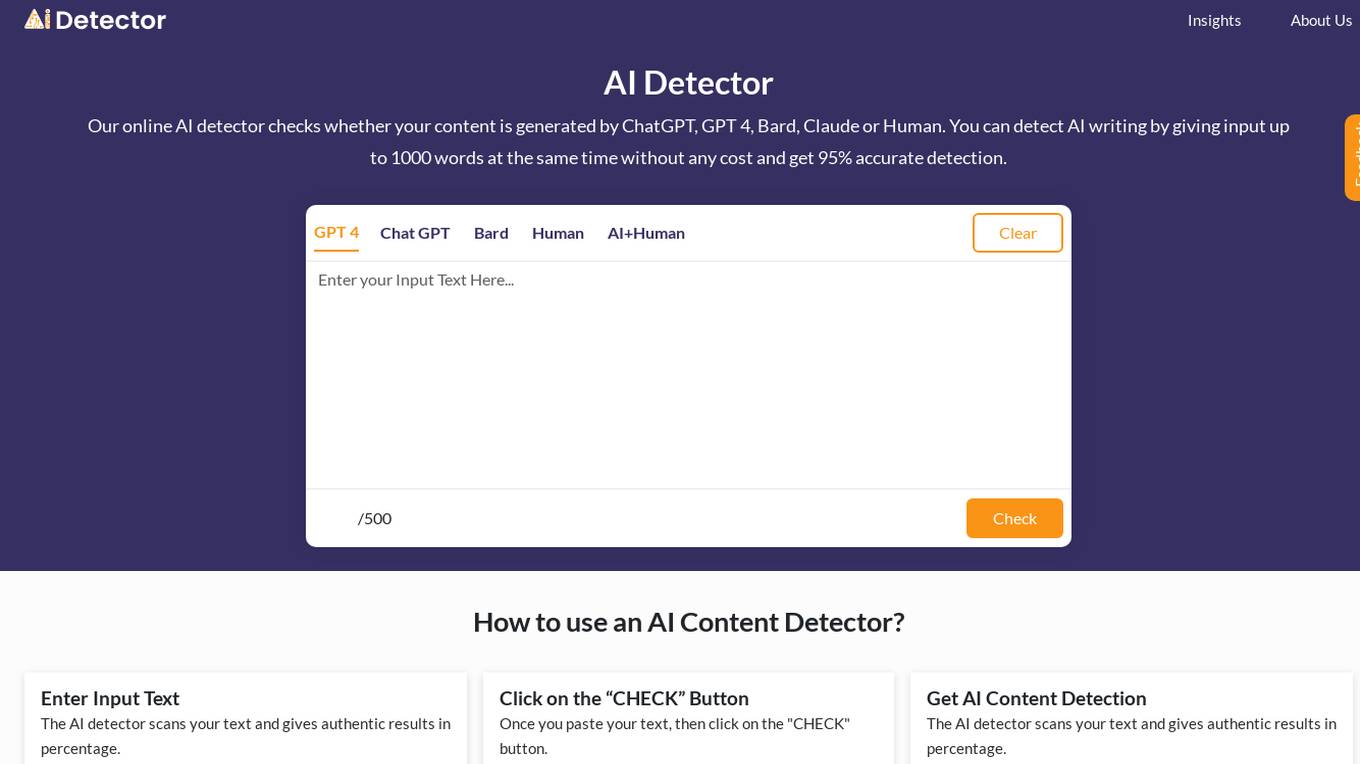
AI Detector
AI Detector is an online tool that uses advanced algorithms and machine learning to check if your written text is generated by AI or a human writer. It analyzes the writing style, sentence structure, and other linguistic patterns to determine the likelihood of AI authorship. The tool provides a percentage score indicating the probability of AI-generated content, helping users identify potential plagiarism or AI-assisted writing.
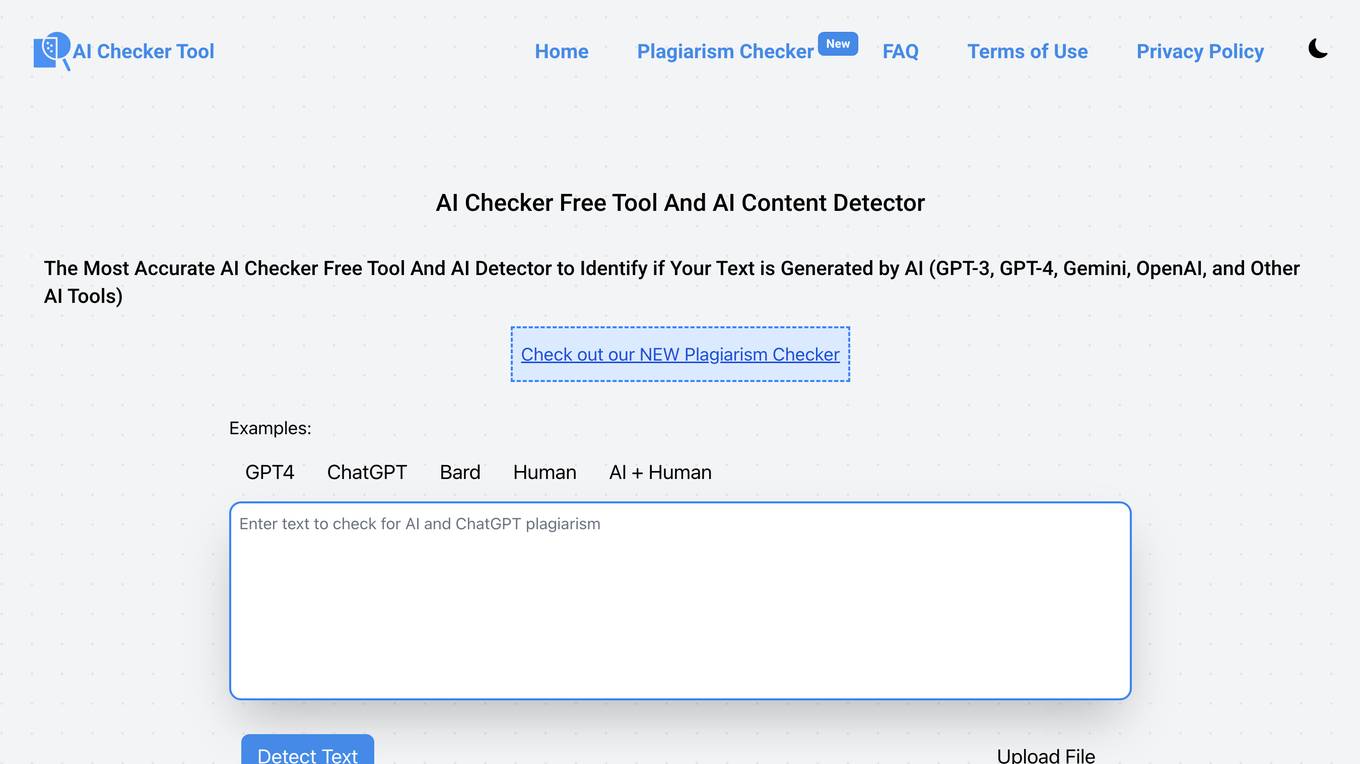
AI Checker
AI Checker is a free tool and plagiarism detector that accurately identifies if a text is generated by AI tools like GPT-3, GPT-4, Gemini, OpenAI, and others. It helps users protect their content by detecting AI-generated text and human-written content. The tool uses advanced algorithms to provide accurate results and percentage analysis of AI-generated content within a text. AI Checker is beneficial for writers, students, educators, content marketers, freelancers, editors, publishers, researchers, and content consumers across different languages and contexts.

HEALWELL AI
HEALWELL AI is a healthcare technology company focusing on preventative care through AI and data science. Their mission is to improve healthcare and save lives by early disease detection. HEALWELL provides AI tools for healthcare providers to screen and detect rare, complex, and chronic diseases. They have developed AI clinical co-pilot technologies to assist physicians in early disease detection, ultimately accelerating time to diagnosis and saving lives.
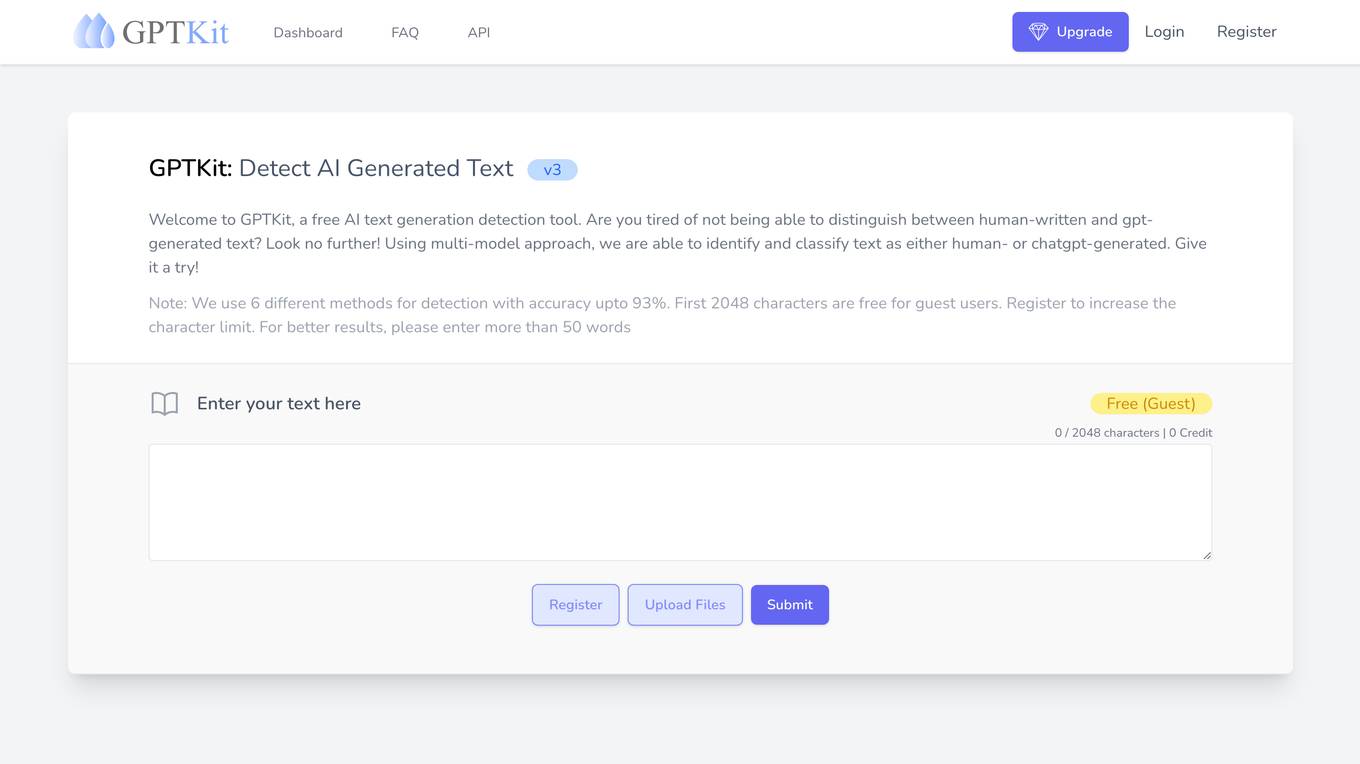
GPTKit
GPTKit is a free AI text generation detection tool that utilizes six different AI-based content detection techniques to identify and classify text as either human- or AI-generated. It provides reports on the authenticity and reality of the analyzed content, with an accuracy of approximately 93%. The first 2048 characters in every request are free, and users can register for free to get 2048 characters/request.
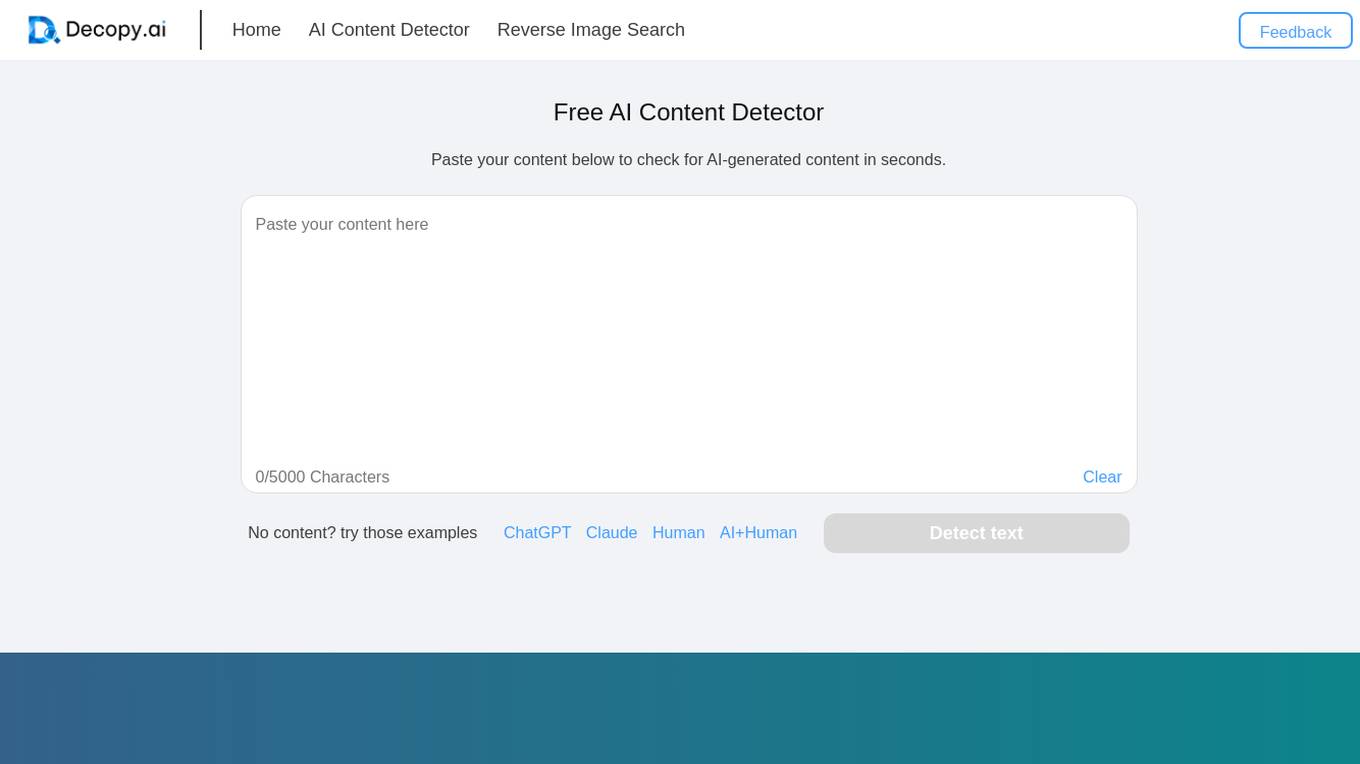
Decopy AI Content Detector
Decopy AI Content Detector is an AI tool designed to help users determine if a given text was written by a human or generated by AI. It accurately identifies AI-generated, paraphrased, and human-written content. The tool offers features such as AI content highlighting, superior detection accuracy, user-friendly interface, free AI detection, instant access without sign-up, and guaranteed privacy. Users can utilize the AI Detector for tasks like academic integrity checks, content creation, journalism verification, publishing standards maintenance, SEO content uniqueness, social media reliability checks, legal document originality verification, and corporate training material quality assurance.
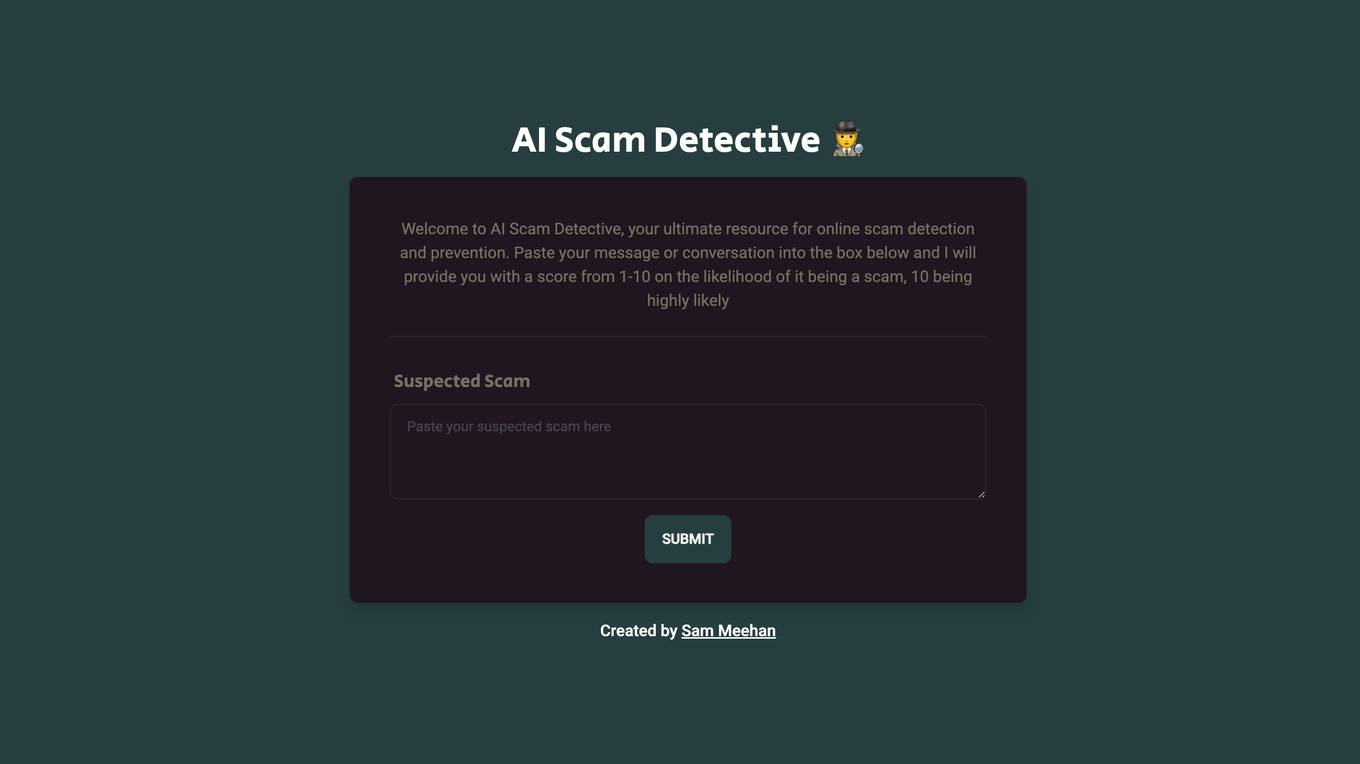
AI Scam Detective
AI Scam Detective is an AI tool designed to help users detect and prevent online scams. Users can input messages or conversations into the tool, and it will provide a score from 1-10 indicating the likelihood of it being a scam. Created by Sam Meehan, this tool aims to empower users to protect themselves from fraudulent activities on the internet.

Unholy.ai
Unholy.ai is an AI tool designed to detect any 'unholiness' in the music you listen to. The tool is currently under construction and being developed by Saud with the help of GPT Bros. It aims to provide users with insights into the content of music they consume, potentially identifying any inappropriate or offensive elements.

TrueBees
TrueBees is a deepfakes detector application that leverages the power of Artificial Intelligence to detect and prevent the spread of AI-generated images on social media. It provides a reliable solution for media professionals and individuals to verify the trustworthiness of images, combat deepfakes, and ensure the authenticity of visual content shared online. By combining digital media forensics and blockchain technology, TrueBees offers a secure platform for authenticating images with high accuracy and efficiency.
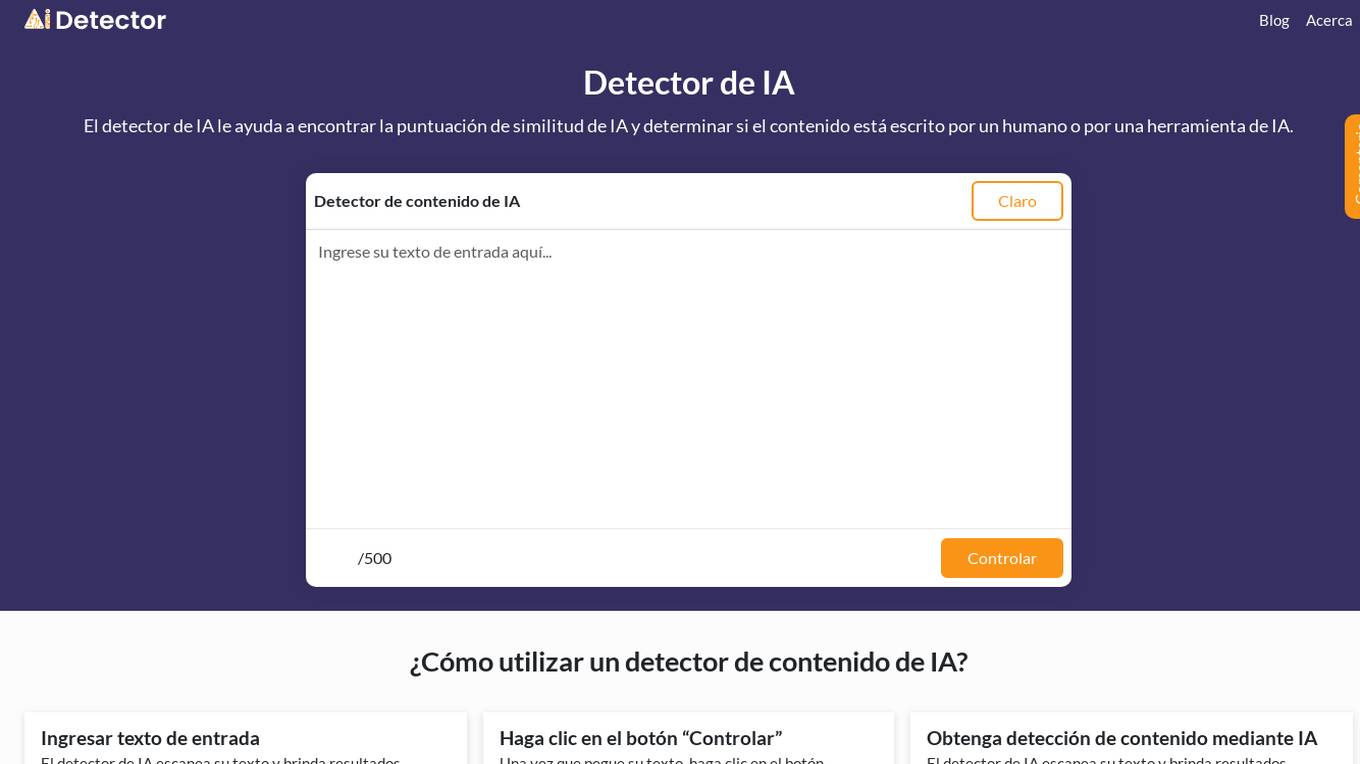
AI Content Detector
The AI Content Detector is an online tool that helps users determine the similarity score of AI-generated content and whether it was written by a human or an AI tool. It utilizes advanced algorithms and natural language processing to analyze text, providing a percentage-based authenticity result. Users can input text for analysis and receive accurate results regarding the likelihood of AI authorship. The tool compares syntax, vocabulary, and semantics with AI and human models, offering high accuracy in identifying paraphrased content.
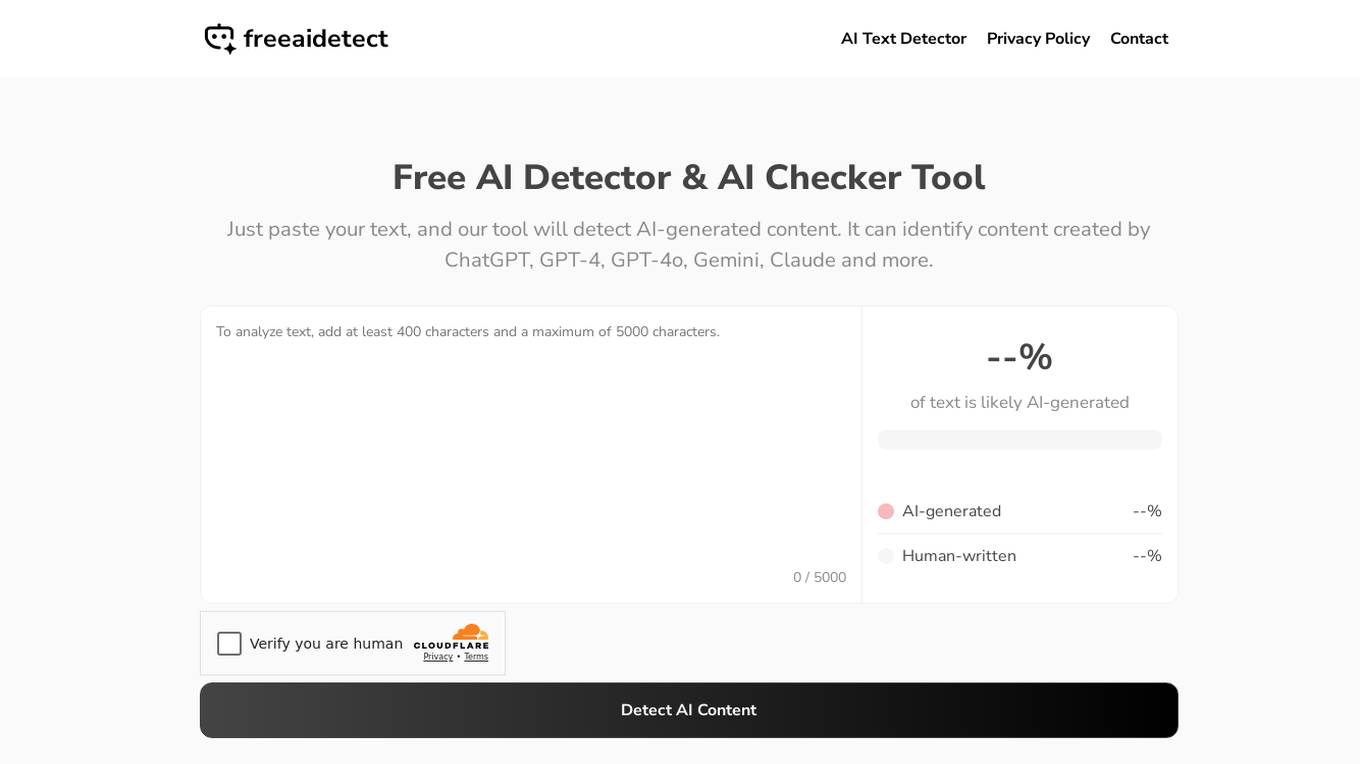
Free AI Detector & AI Checker
Free AI Detector & AI Checker is a powerful online tool that allows users to detect AI-generated content in text. Users can simply paste their text into the tool, and it can identify content created by various AI models such as ChatGPT, GPT-4, GPT-4o, Gemini, Claude, and more. The tool is perfect for students, writers, teachers, bloggers, businesses, and freelancers to ensure the authenticity and originality of their content. It is simple, reliable, and free to use without any limitations or the need for account creation.
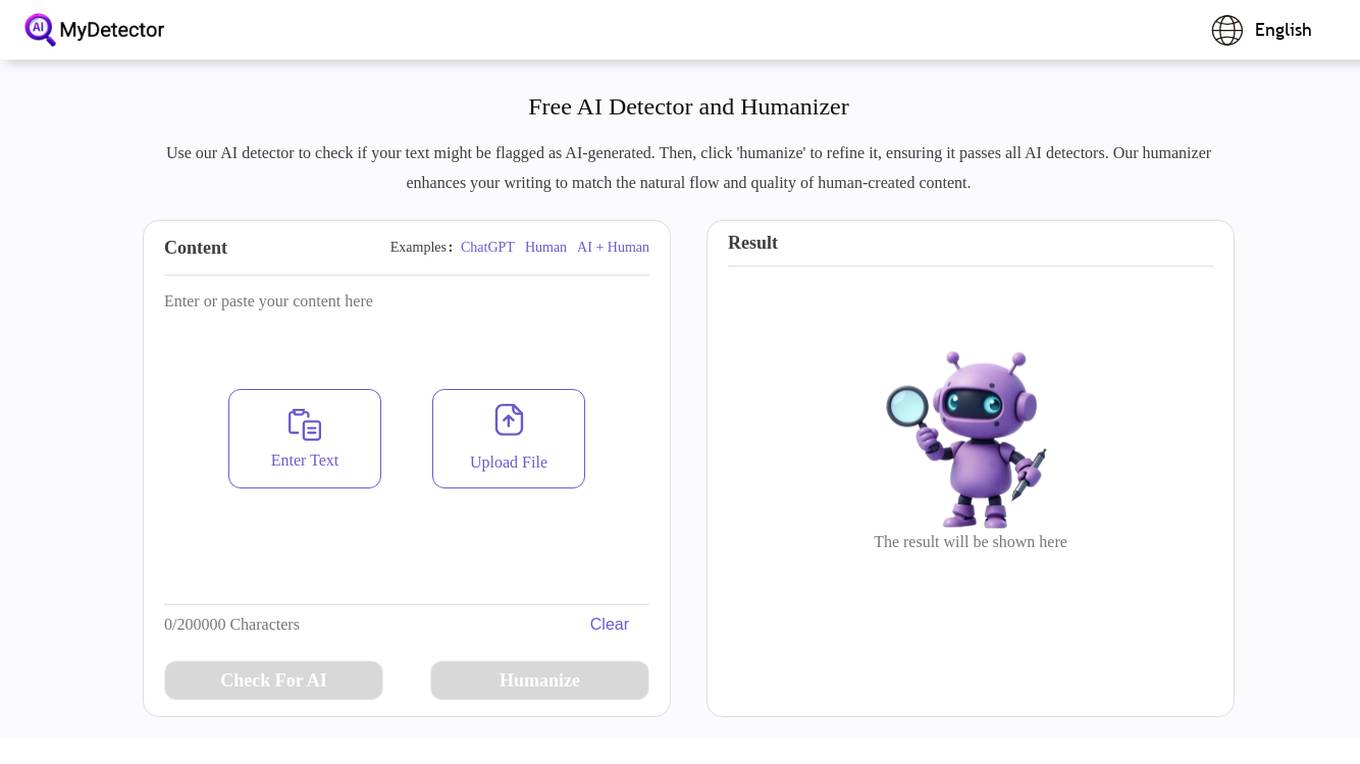
MyDetector
MyDetector is a free and reliable AI detector tool designed to check for AI-generated content, including ChatGPT, GPT-4, and Gemini. It uses advanced algorithms to analyze text and identify patterns typical of AI-generated content. The tool is beneficial for writers, teachers, and businesses to ensure the authenticity of the content they use. MyDetector offers high-precision detection, multi-format support, real-time results, and content comparison features, making it a versatile platform for AI detection and humanization.
0 - Open Source AI Tools
20 - OpenAI Gpts
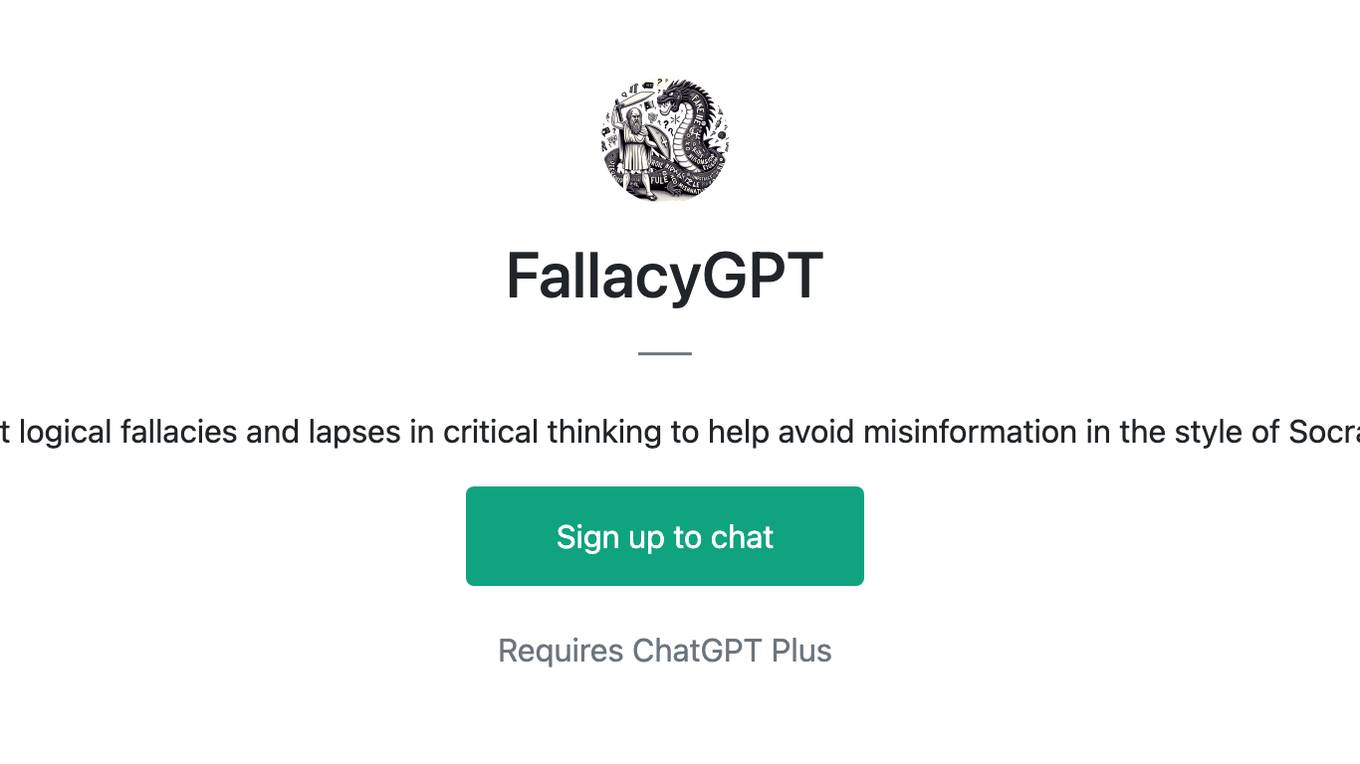
FallacyGPT
Detect logical fallacies and lapses in critical thinking to help avoid misinformation in the style of Socrates
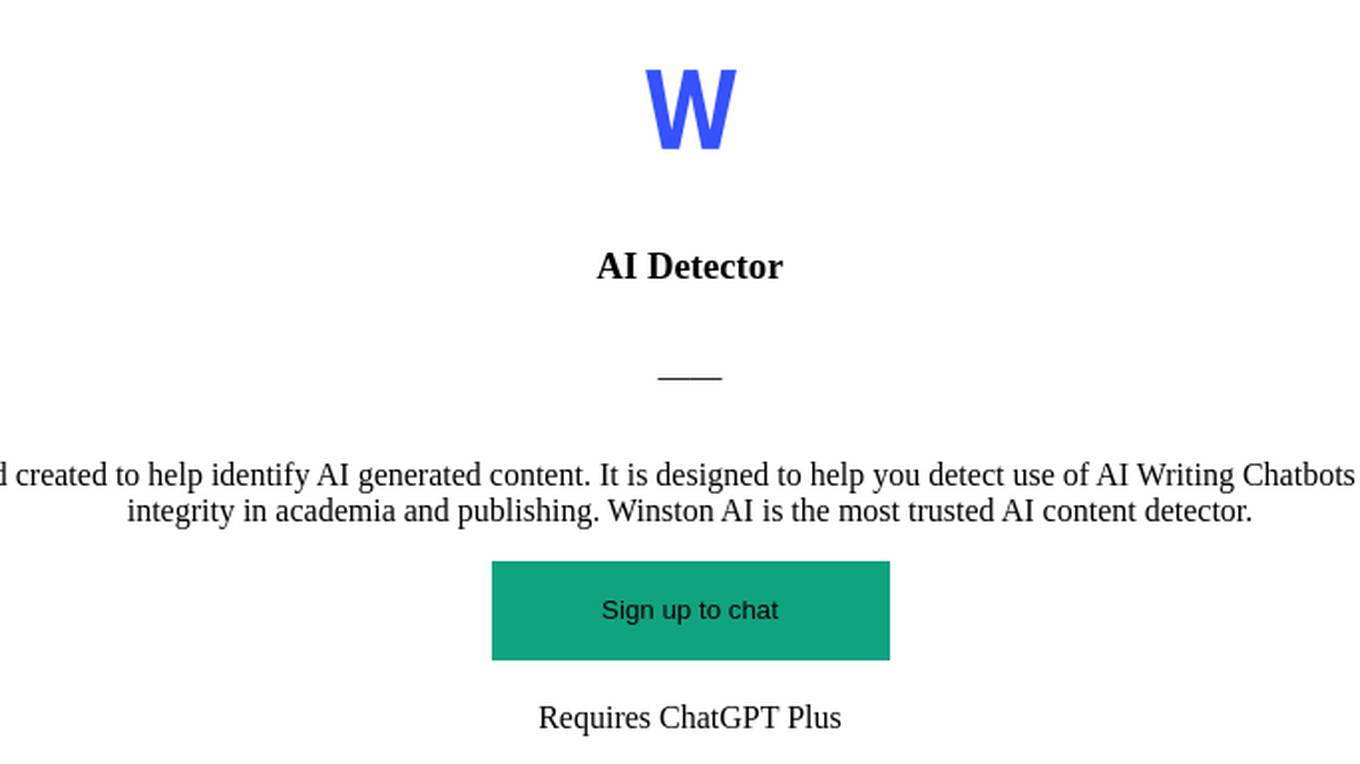
AI Detector
AI Detector GPT is powered by Winston AI and created to help identify AI generated content. It is designed to help you detect use of AI Writing Chatbots such as ChatGPT, Claude and Bard and maintain integrity in academia and publishing. Winston AI is the most trusted AI content detector.
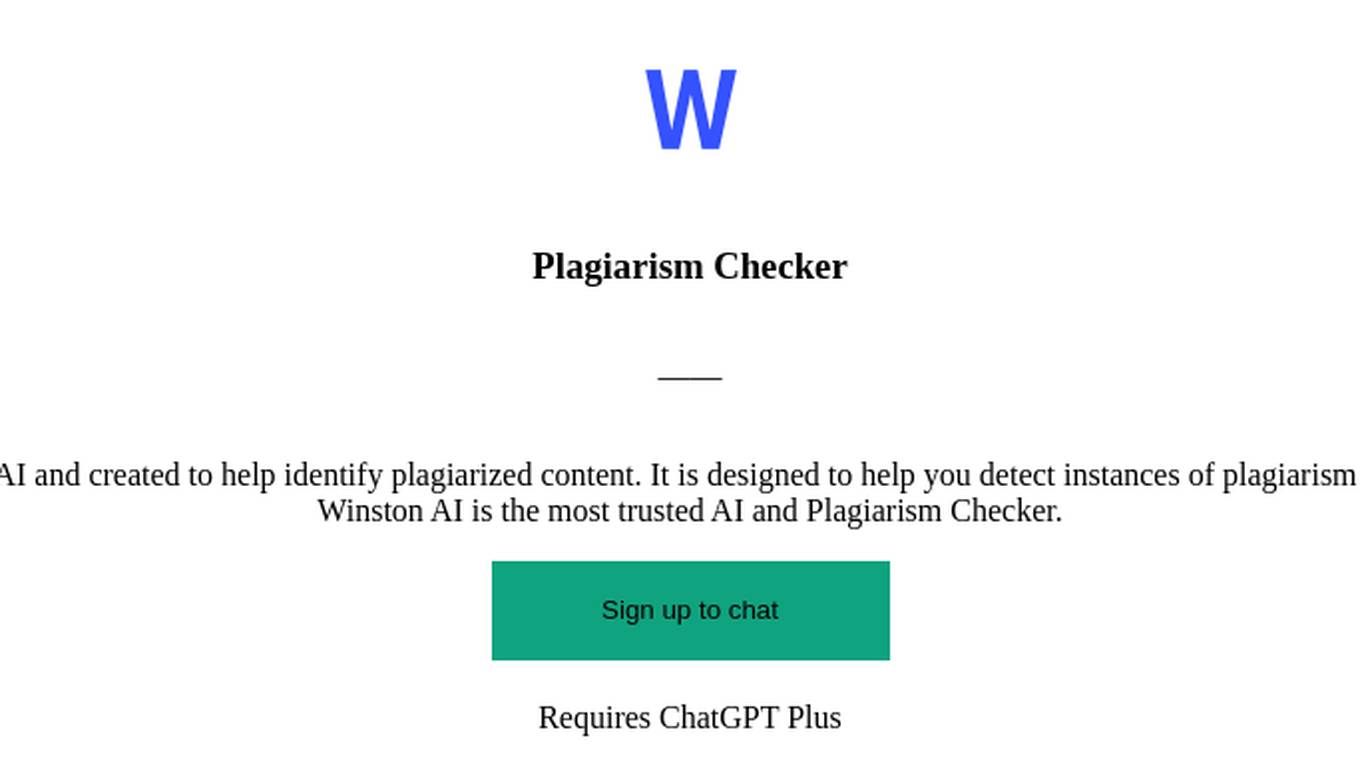
Plagiarism Checker
Plagiarism Checker GPT is powered by Winston AI and created to help identify plagiarized content. It is designed to help you detect instances of plagiarism and maintain integrity in academia and publishing. Winston AI is the most trusted AI and Plagiarism Checker.
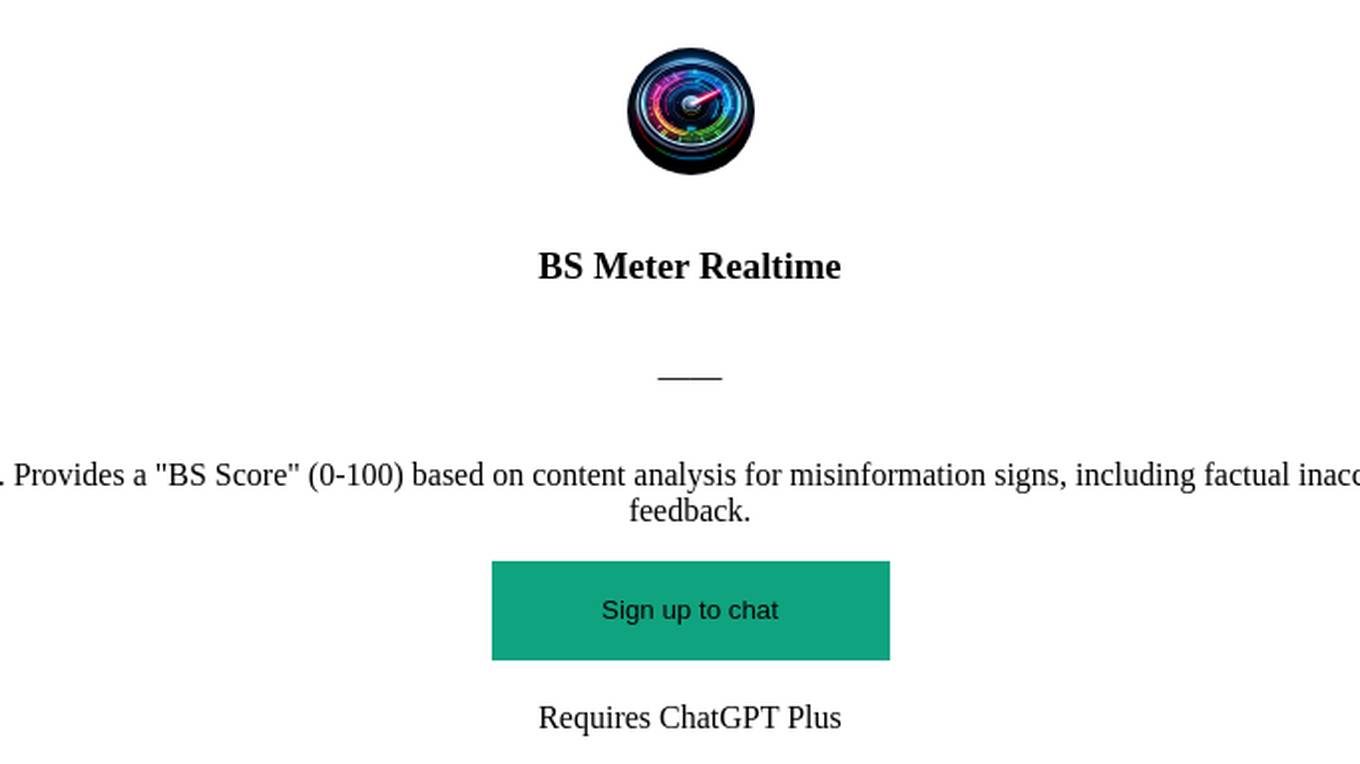
BS Meter Realtime
Detects and measures information credibility. Provides a "BS Score" (0-100) based on content analysis for misinformation signs, including factual inaccuracies and sensationalist language. Real-time feedback.
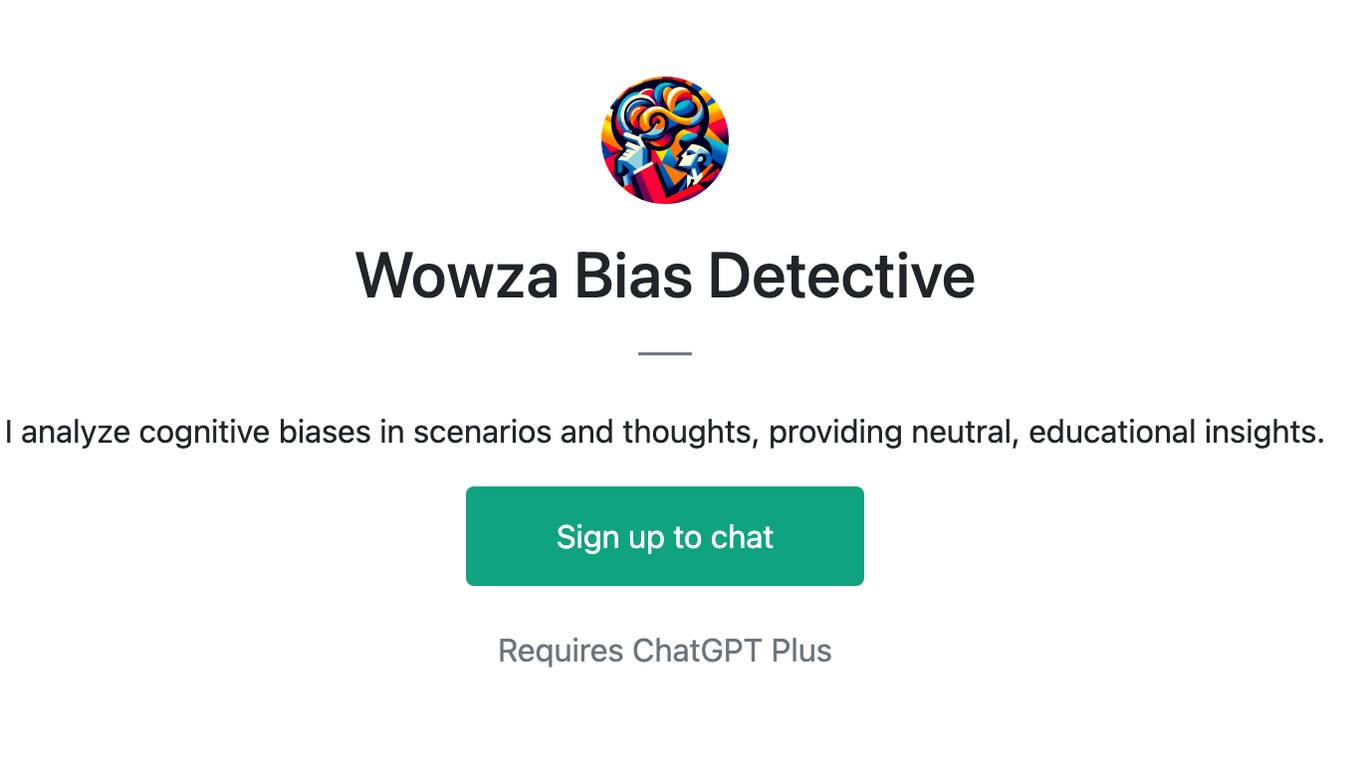
Wowza Bias Detective
I analyze cognitive biases in scenarios and thoughts, providing neutral, educational insights.
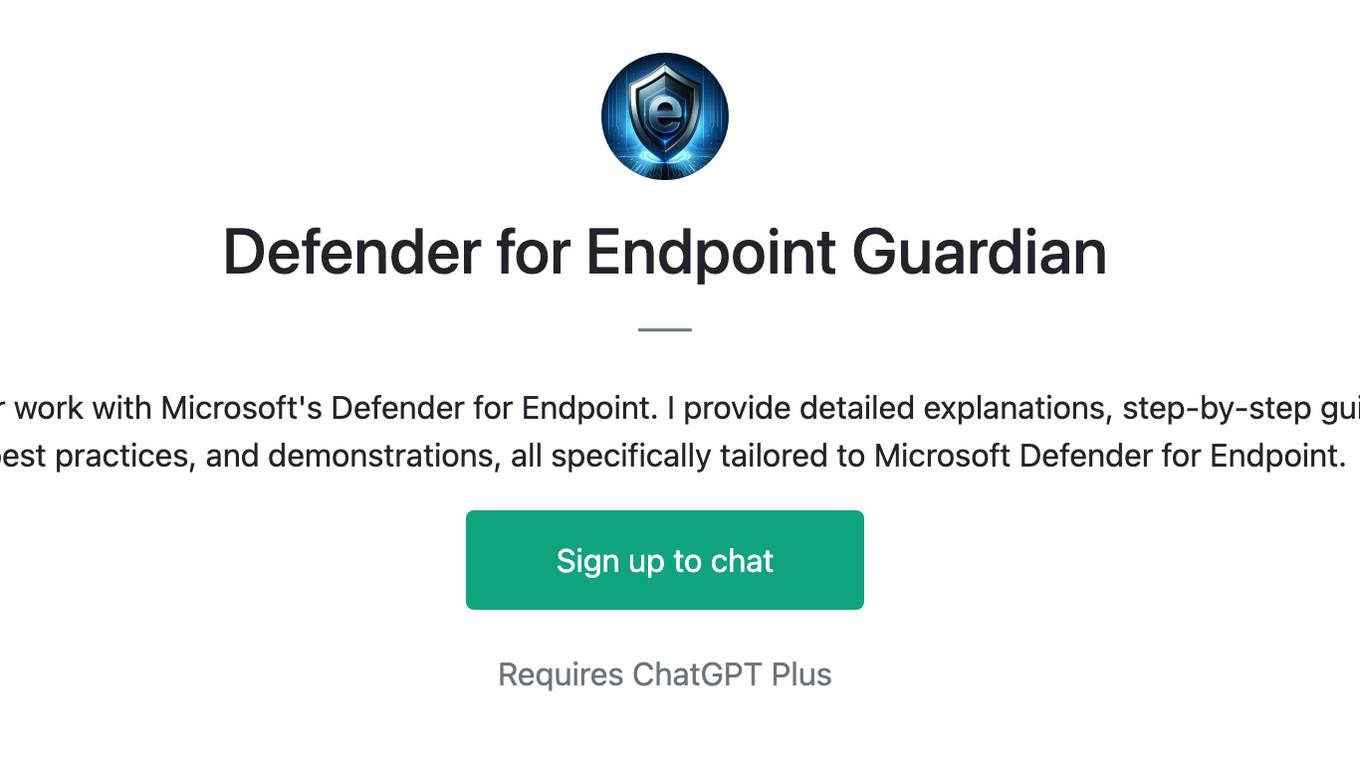
Defender for Endpoint Guardian
To assist individuals seeking to learn about or work with Microsoft's Defender for Endpoint. I provide detailed explanations, step-by-step guides, troubleshooting advice, cybersecurity best practices, and demonstrations, all specifically tailored to Microsoft Defender for Endpoint.
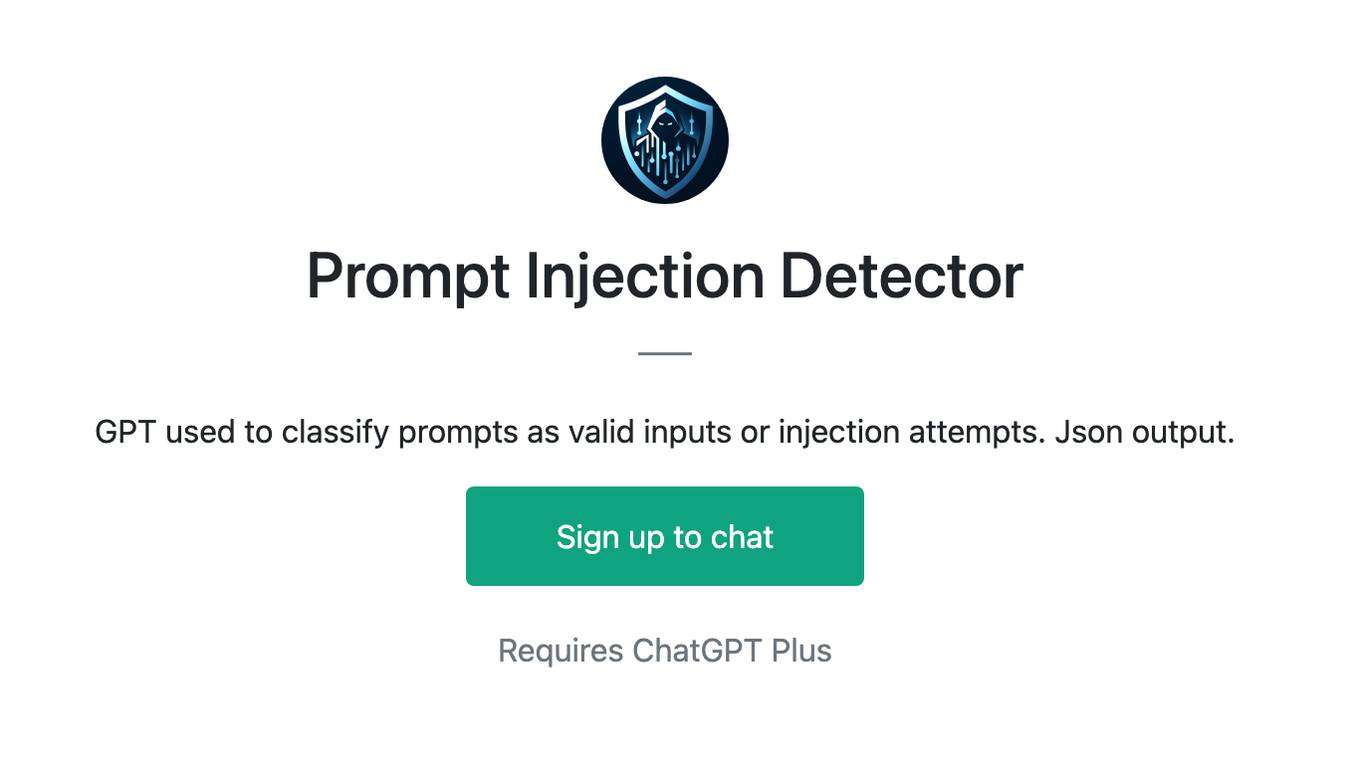
Prompt Injection Detector
GPT used to classify prompts as valid inputs or injection attempts. Json output.
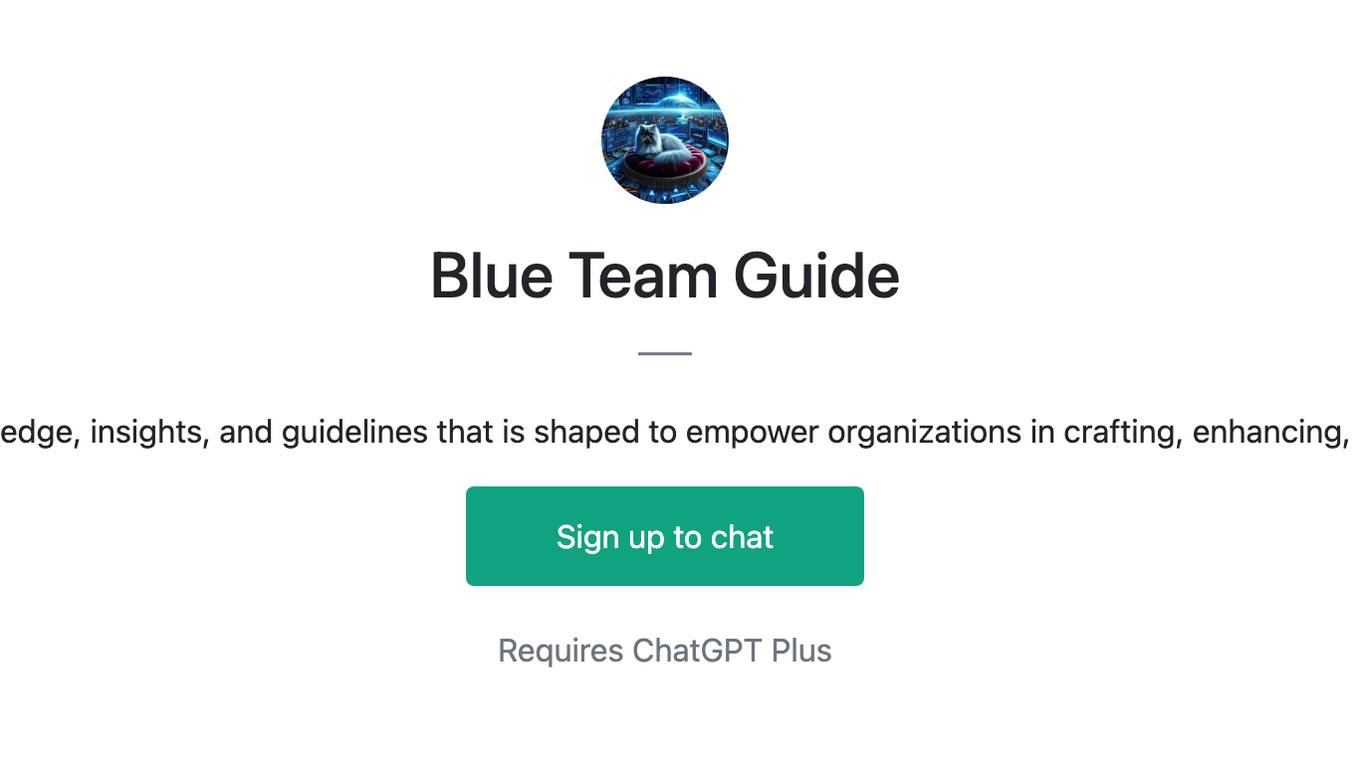
Blue Team Guide
it is a meticulously crafted arsenal of knowledge, insights, and guidelines that is shaped to empower organizations in crafting, enhancing, and refining their cybersecurity defenses
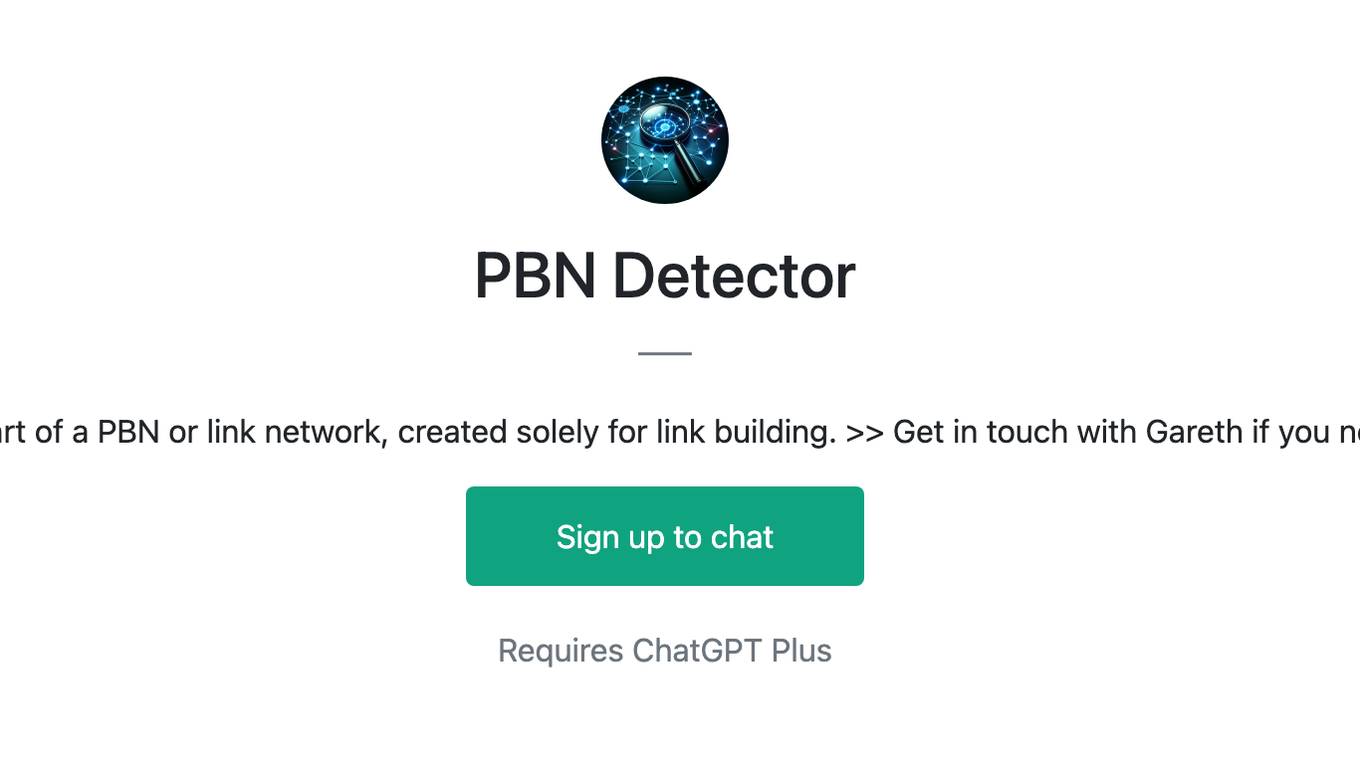
PBN Detector
A tool to help you decide if a website is part of a PBN or link network, created solely for link building. >> Get in touch with Gareth if you need a Freelance SEO for link building <<
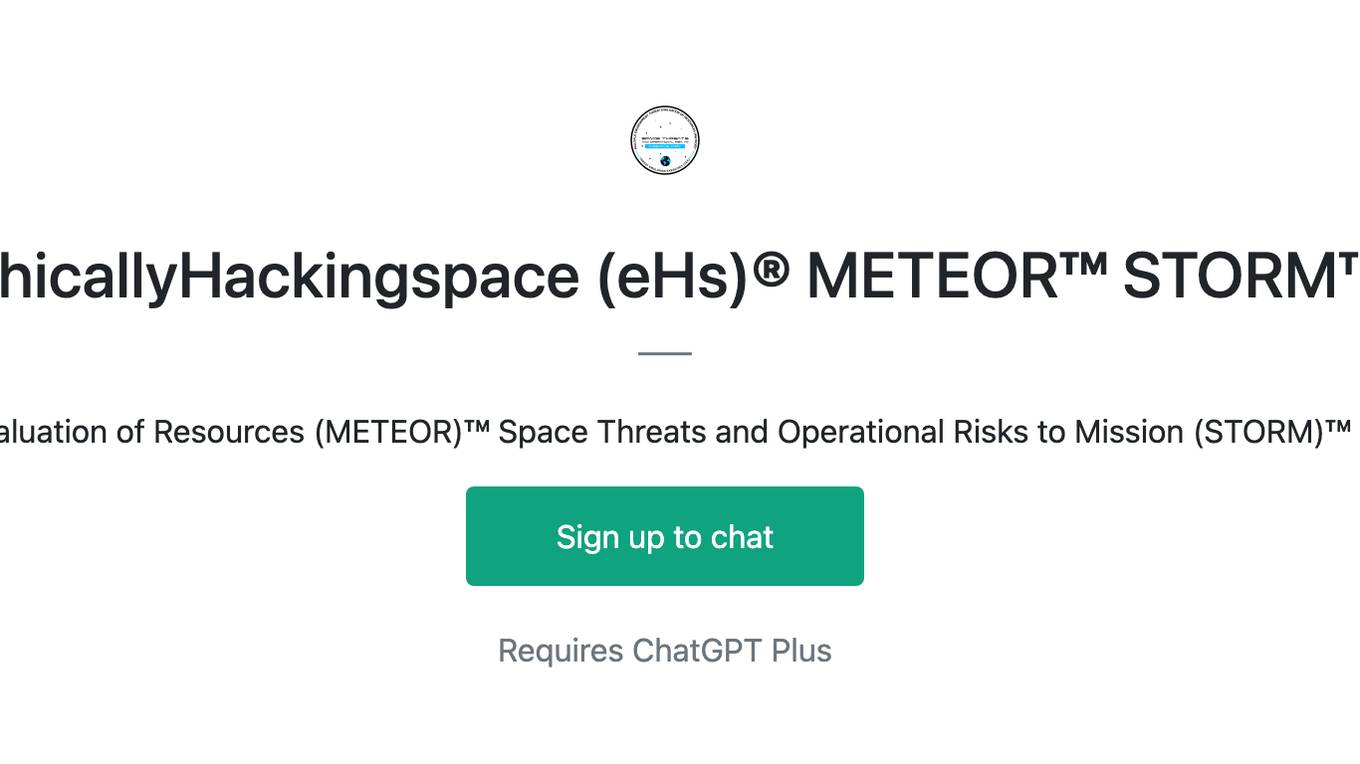
ethicallyHackingspace (eHs)® METEOR™ STORM™
Multiple Environment Threat Evaluation of Resources (METEOR)™ Space Threats and Operational Risks to Mission (STORM)™ non-profit product AI co-pilot
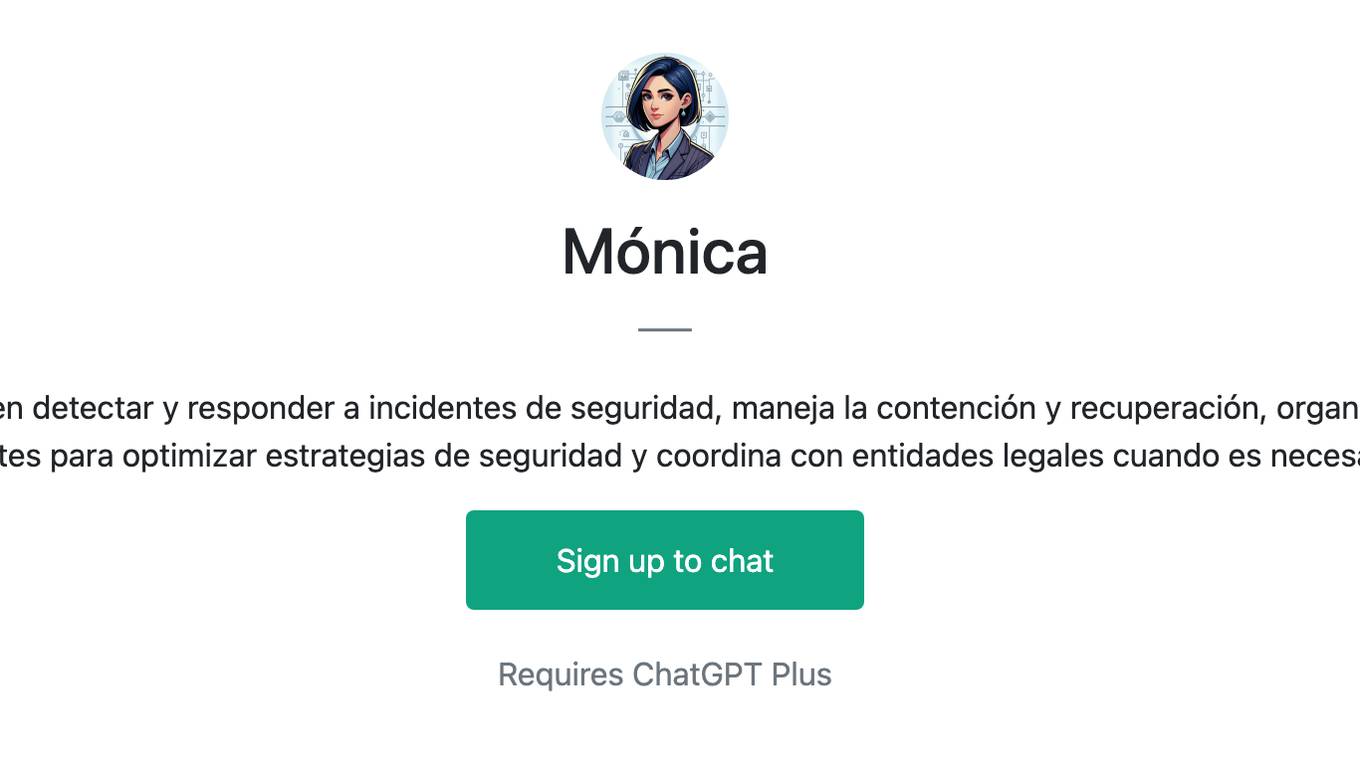
Mónica
CSIRT que lidera un equipo especializado en detectar y responder a incidentes de seguridad, maneja la contención y recuperación, organiza entrenamientos y simulacros, elabora reportes para optimizar estrategias de seguridad y coordina con entidades legales cuando es necesario
